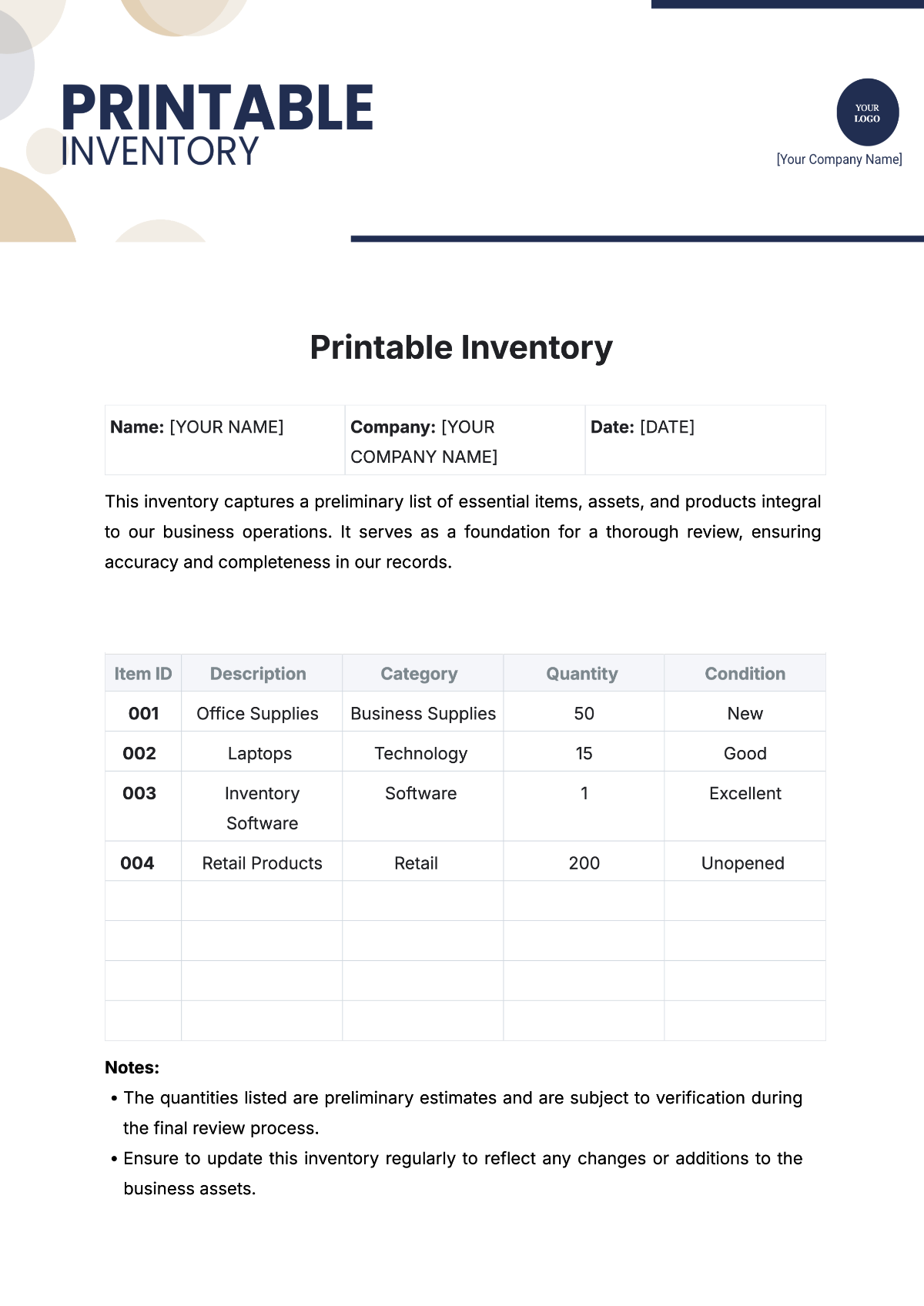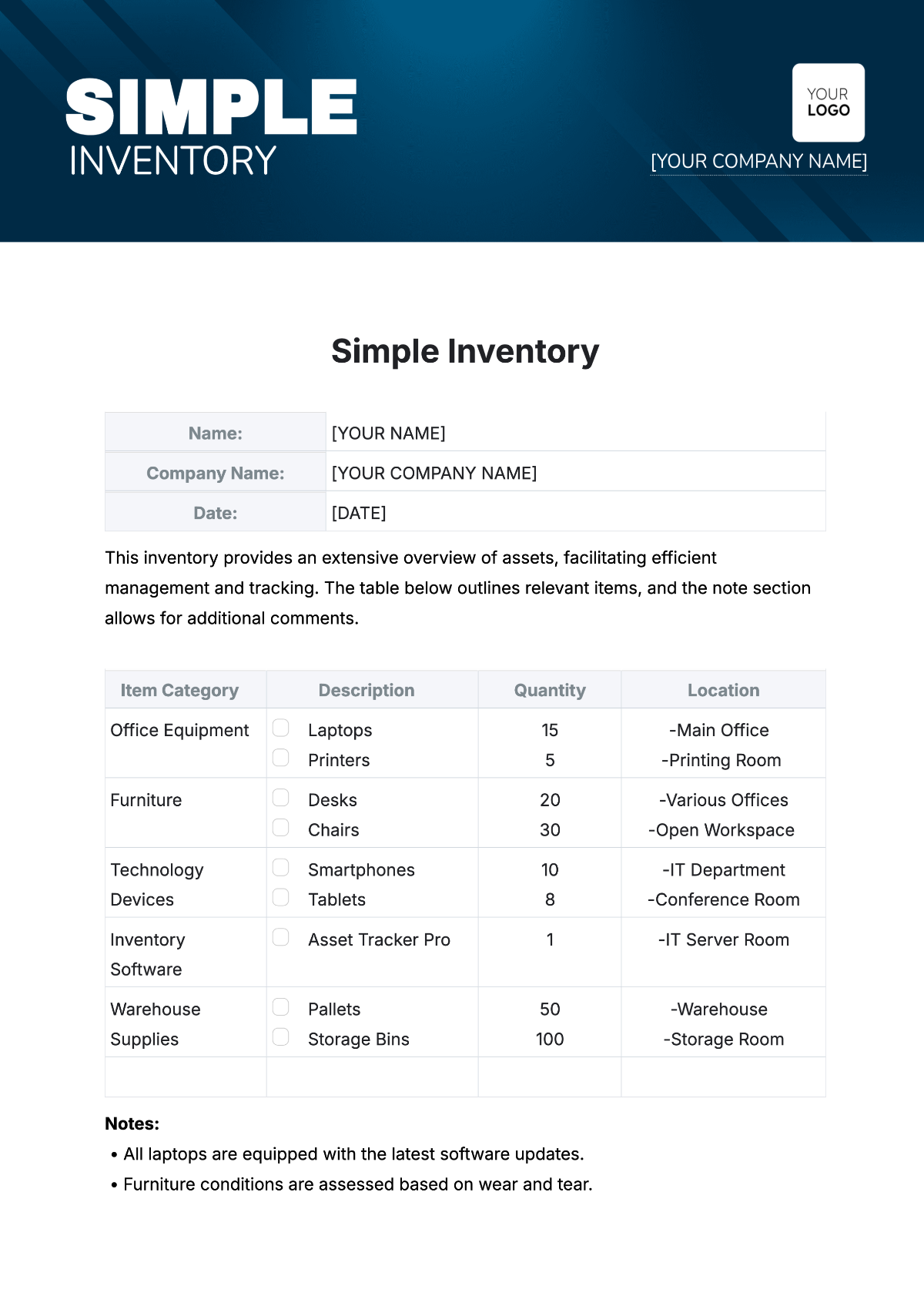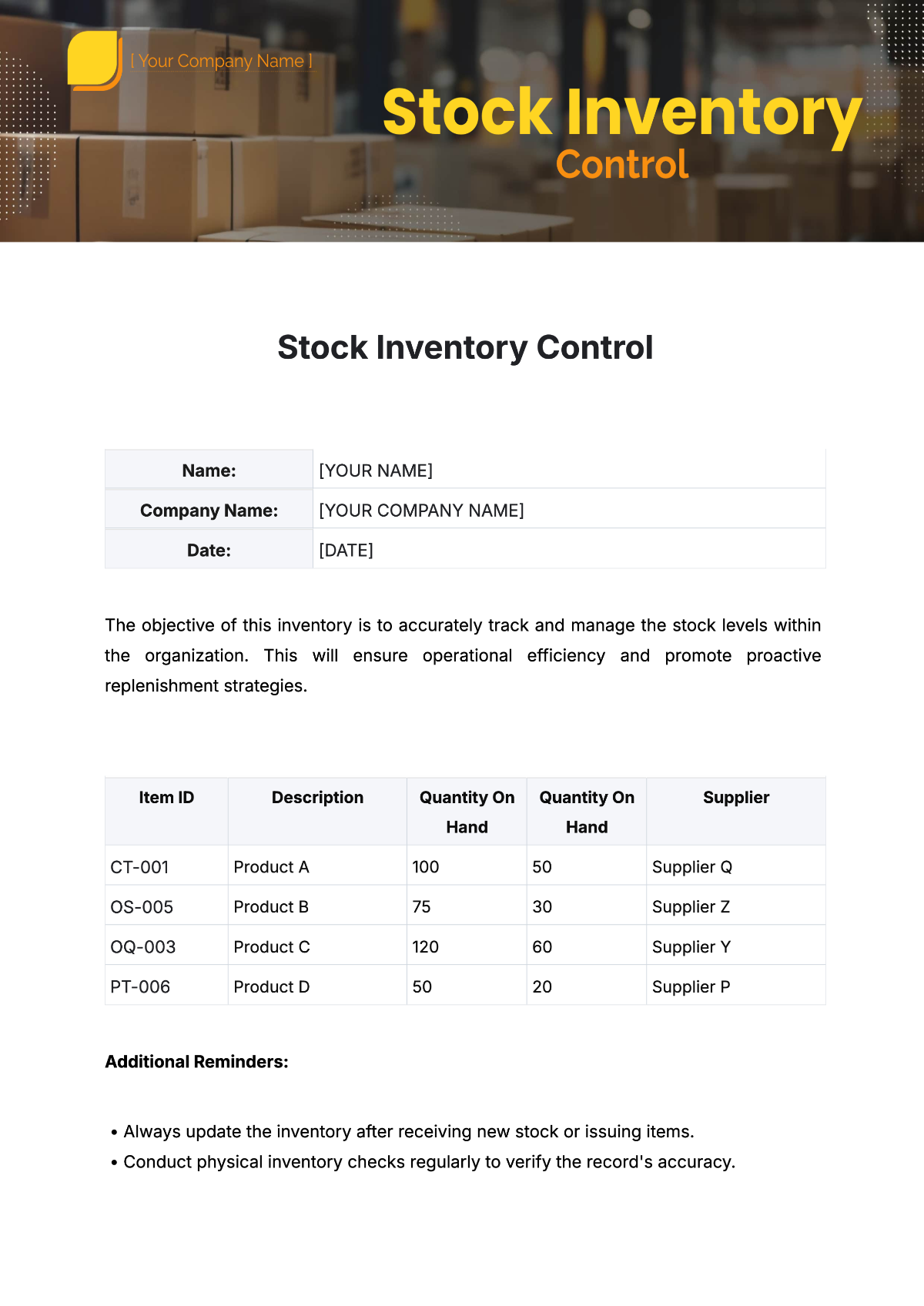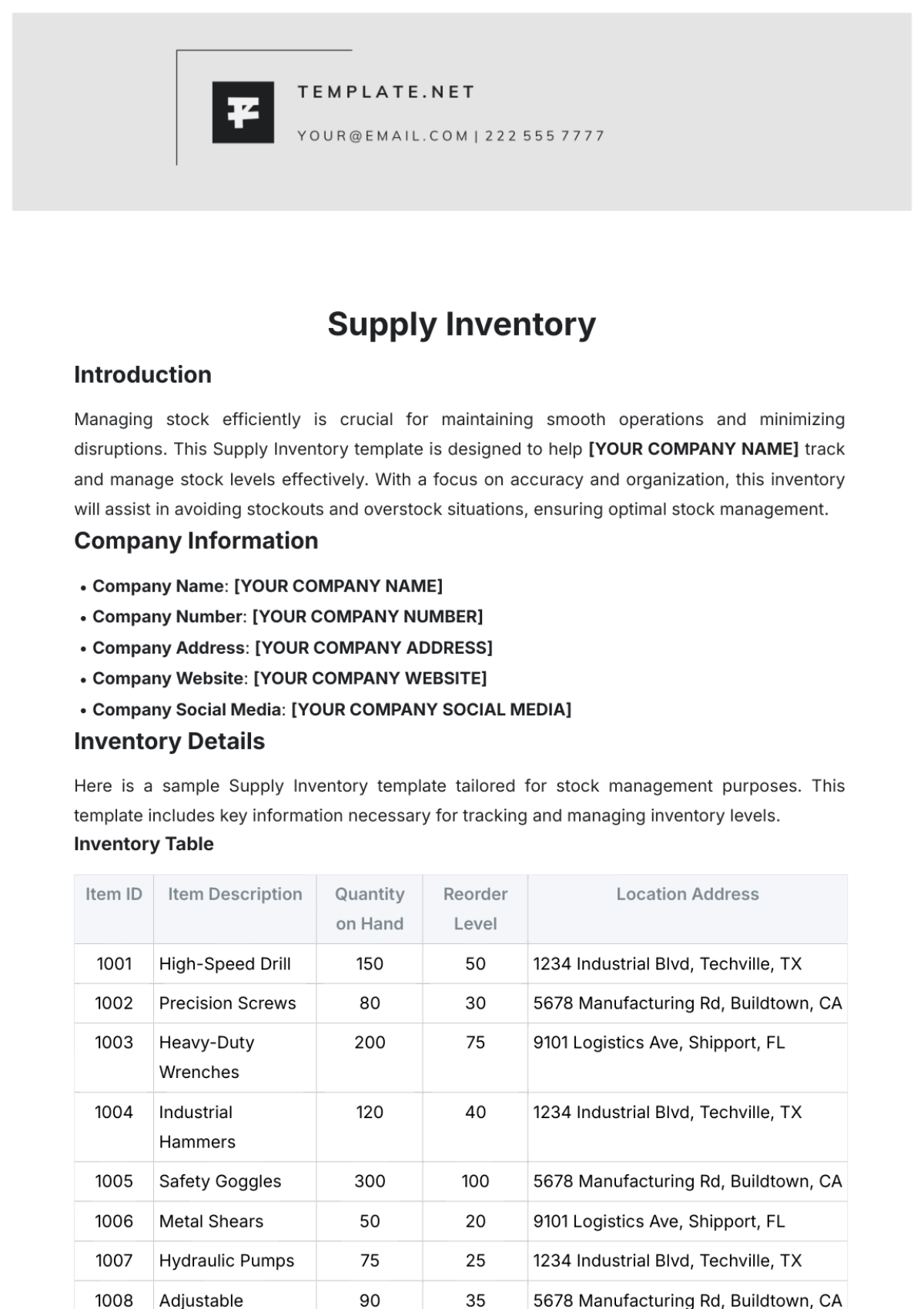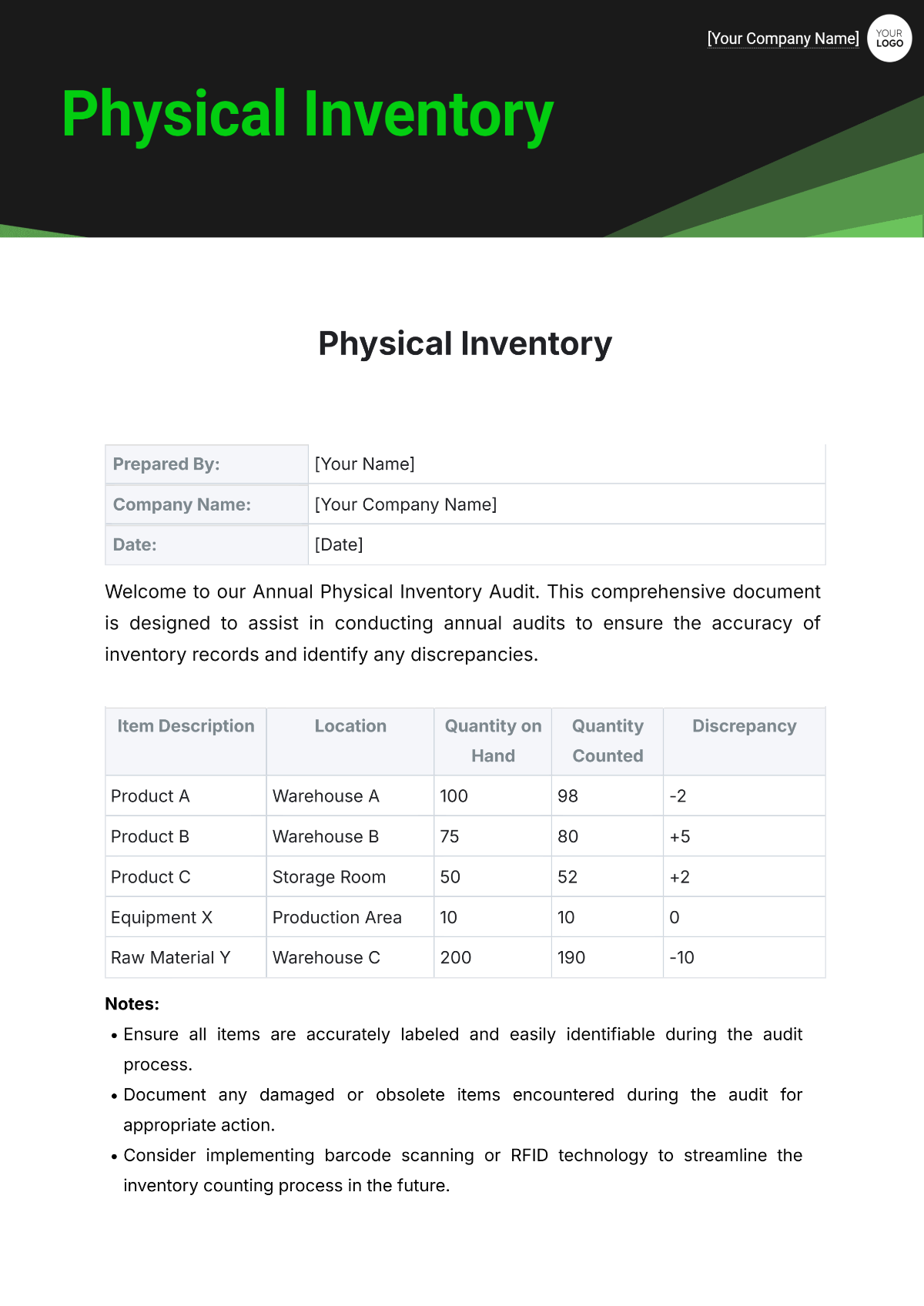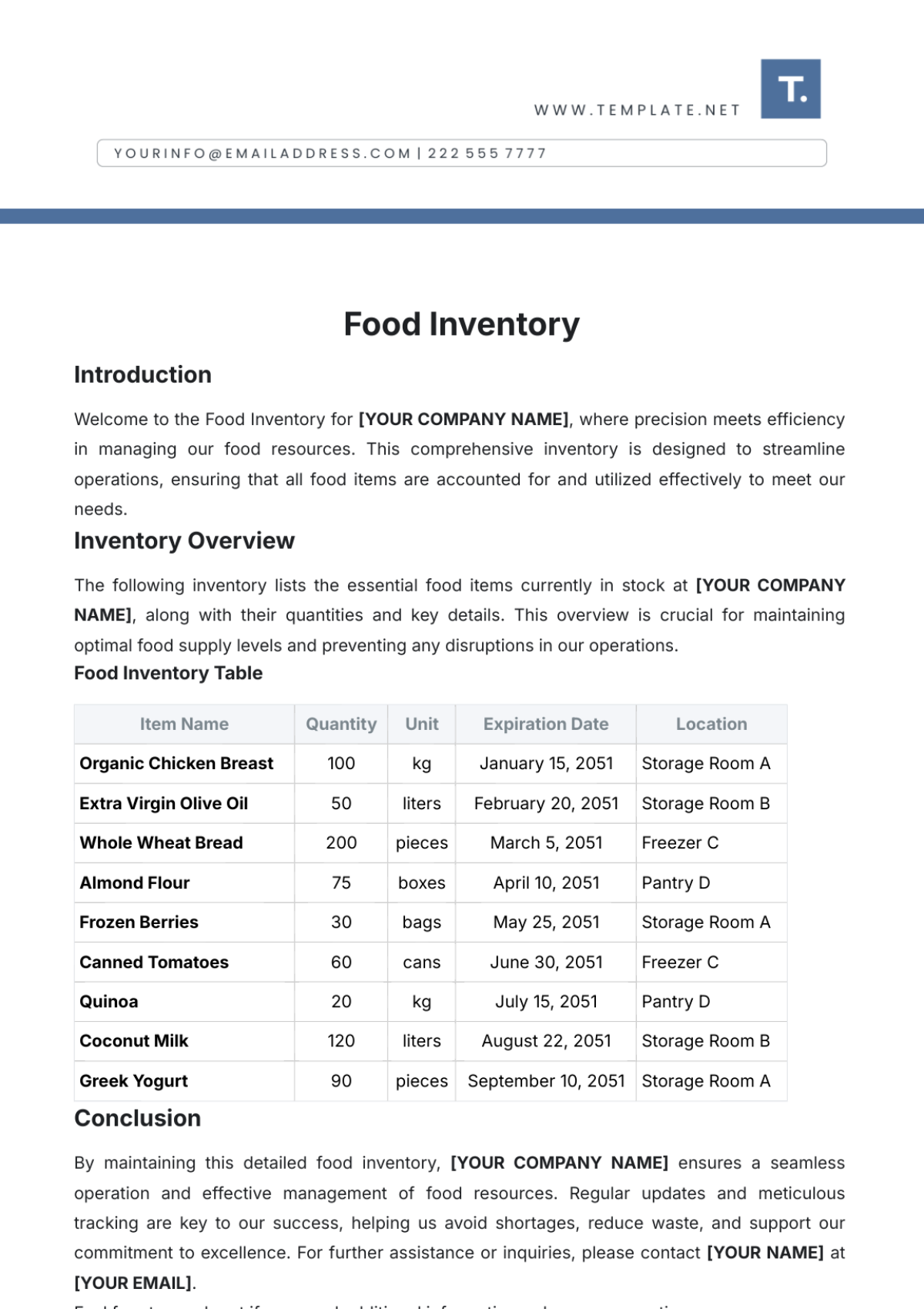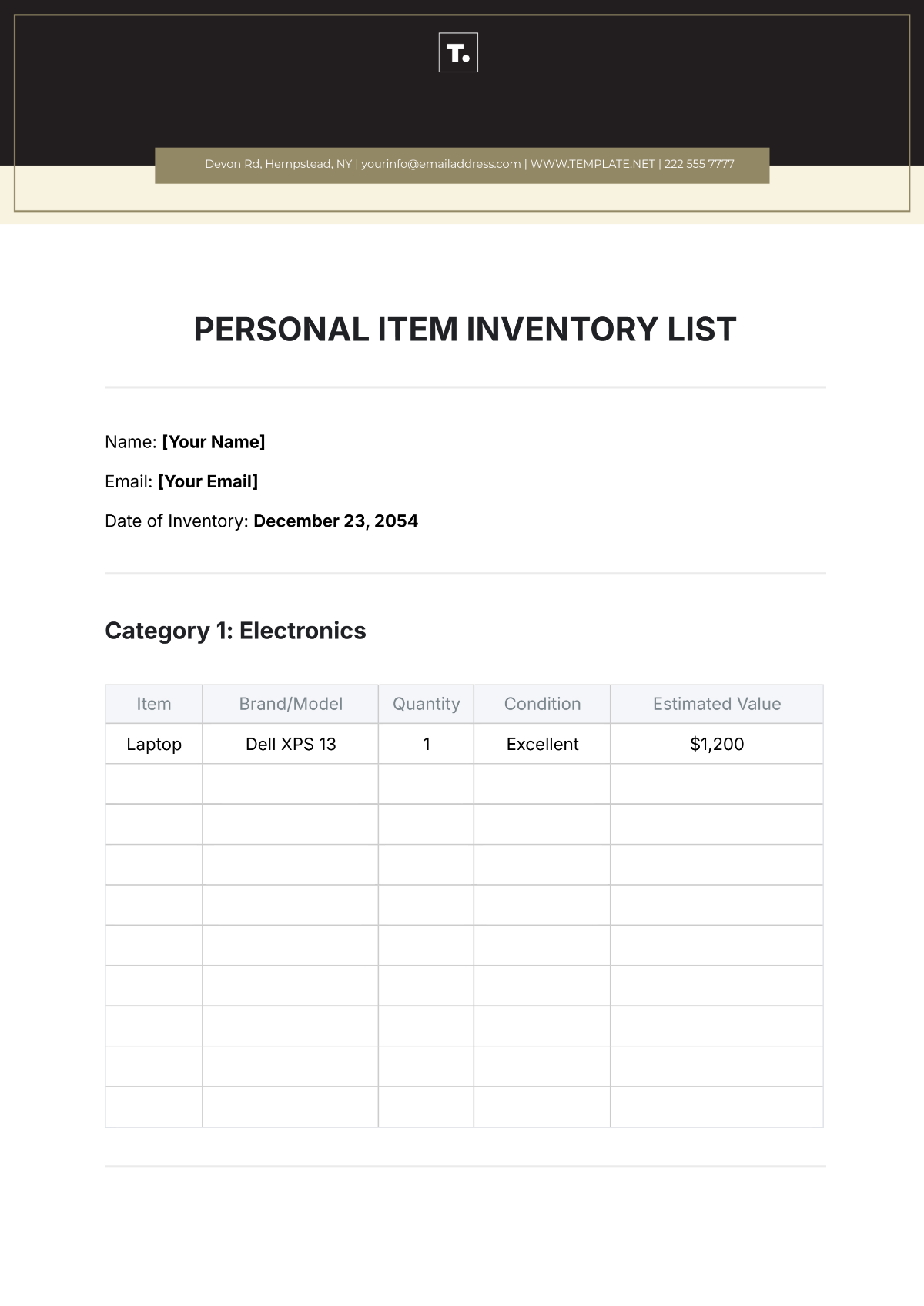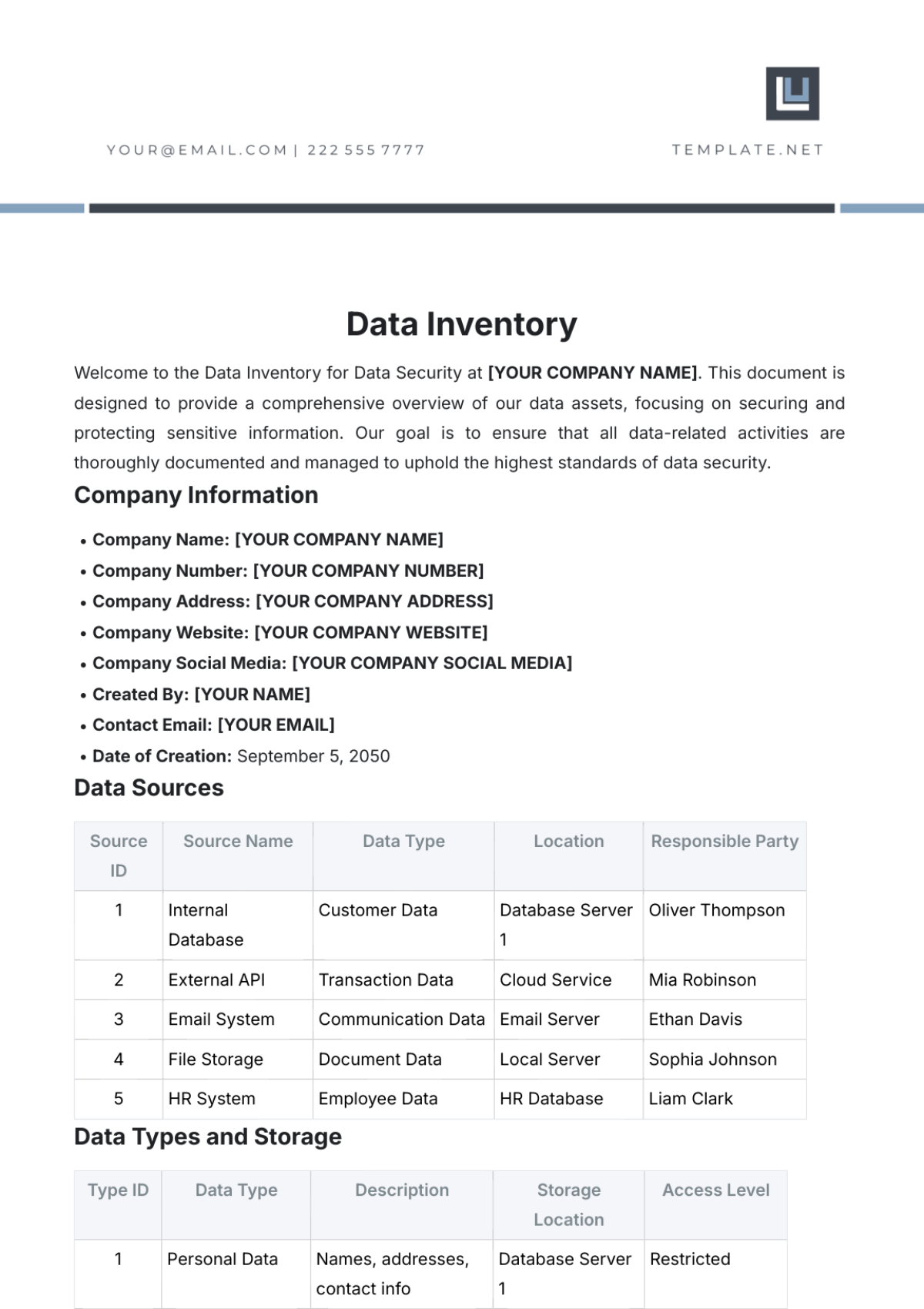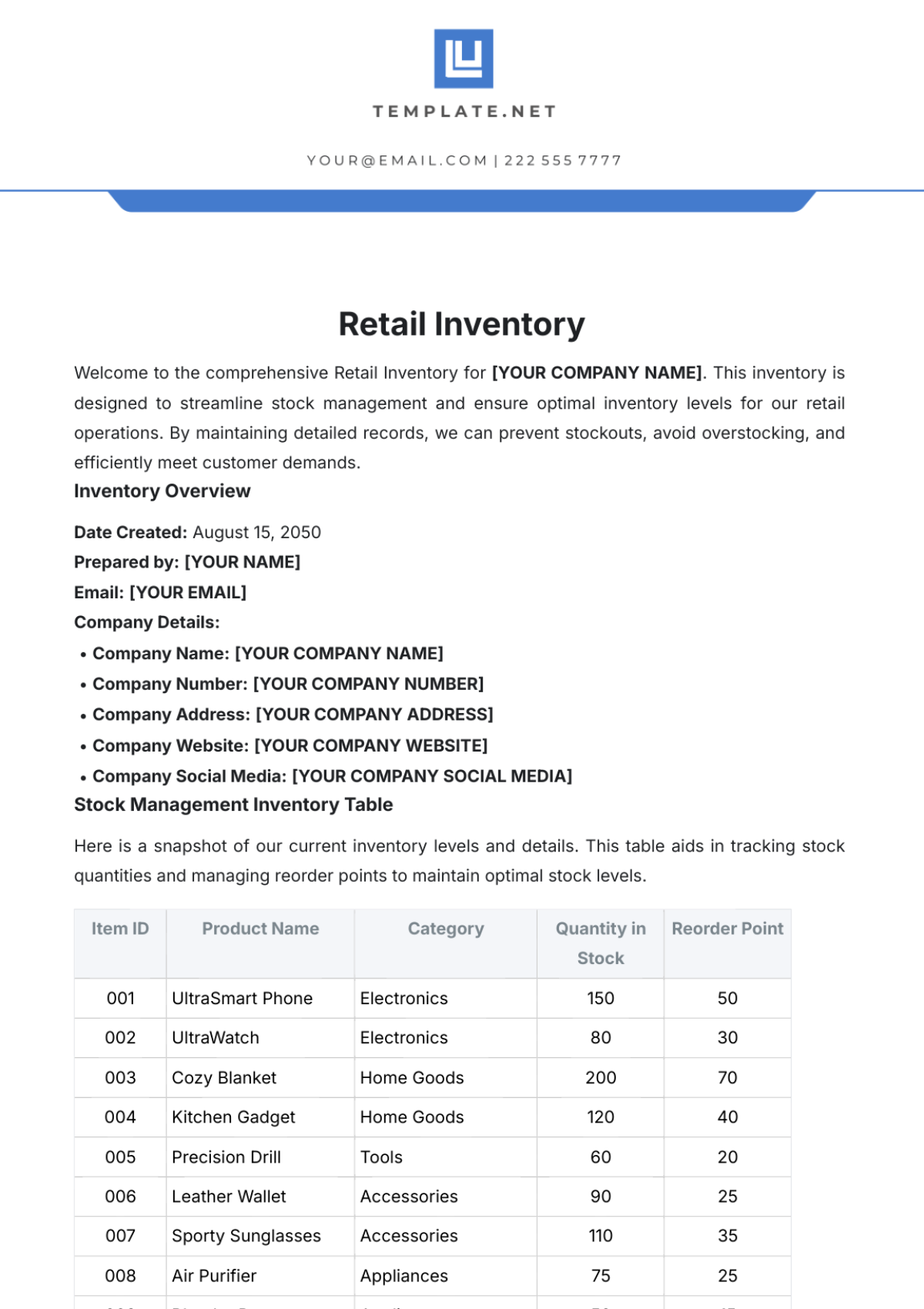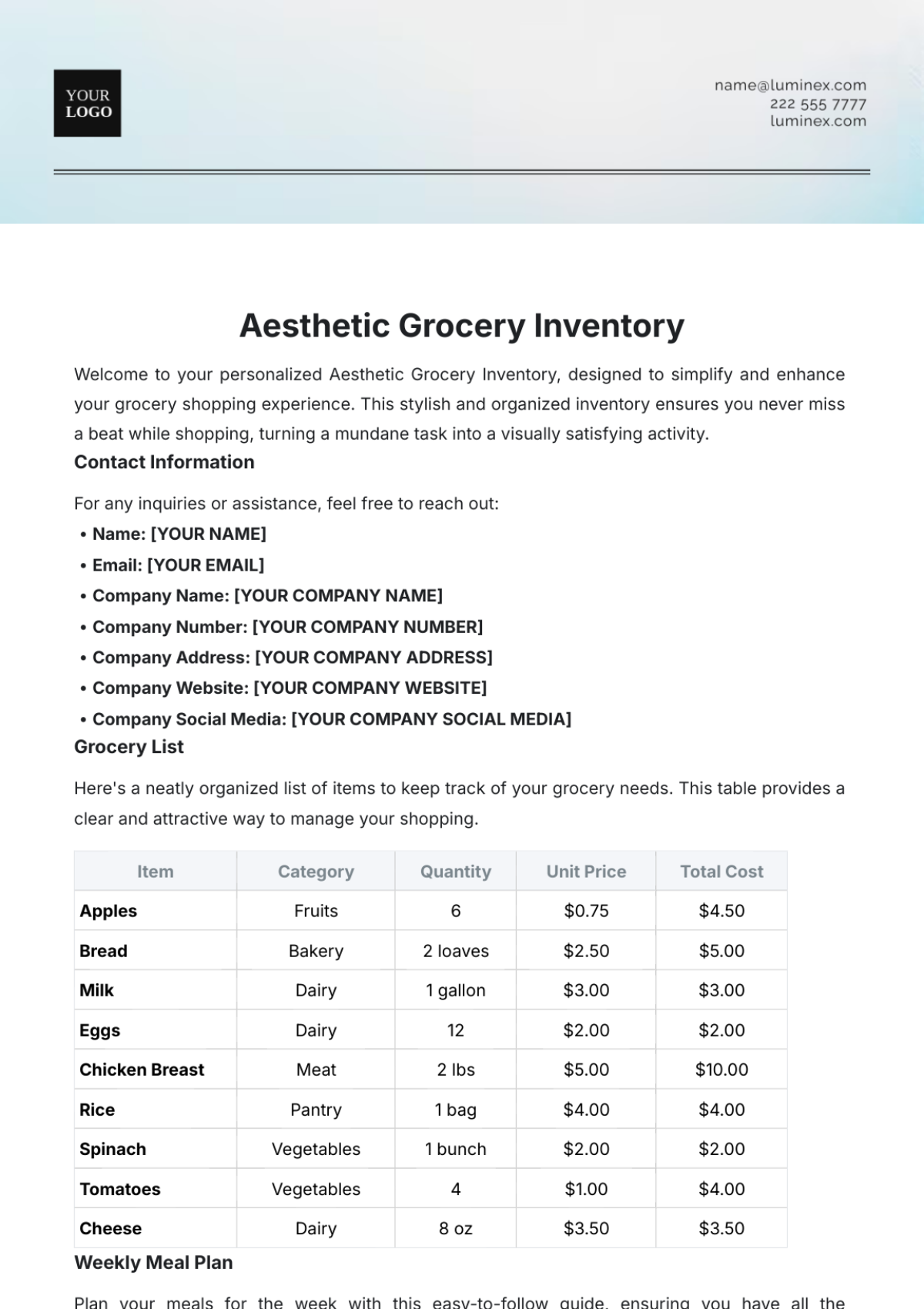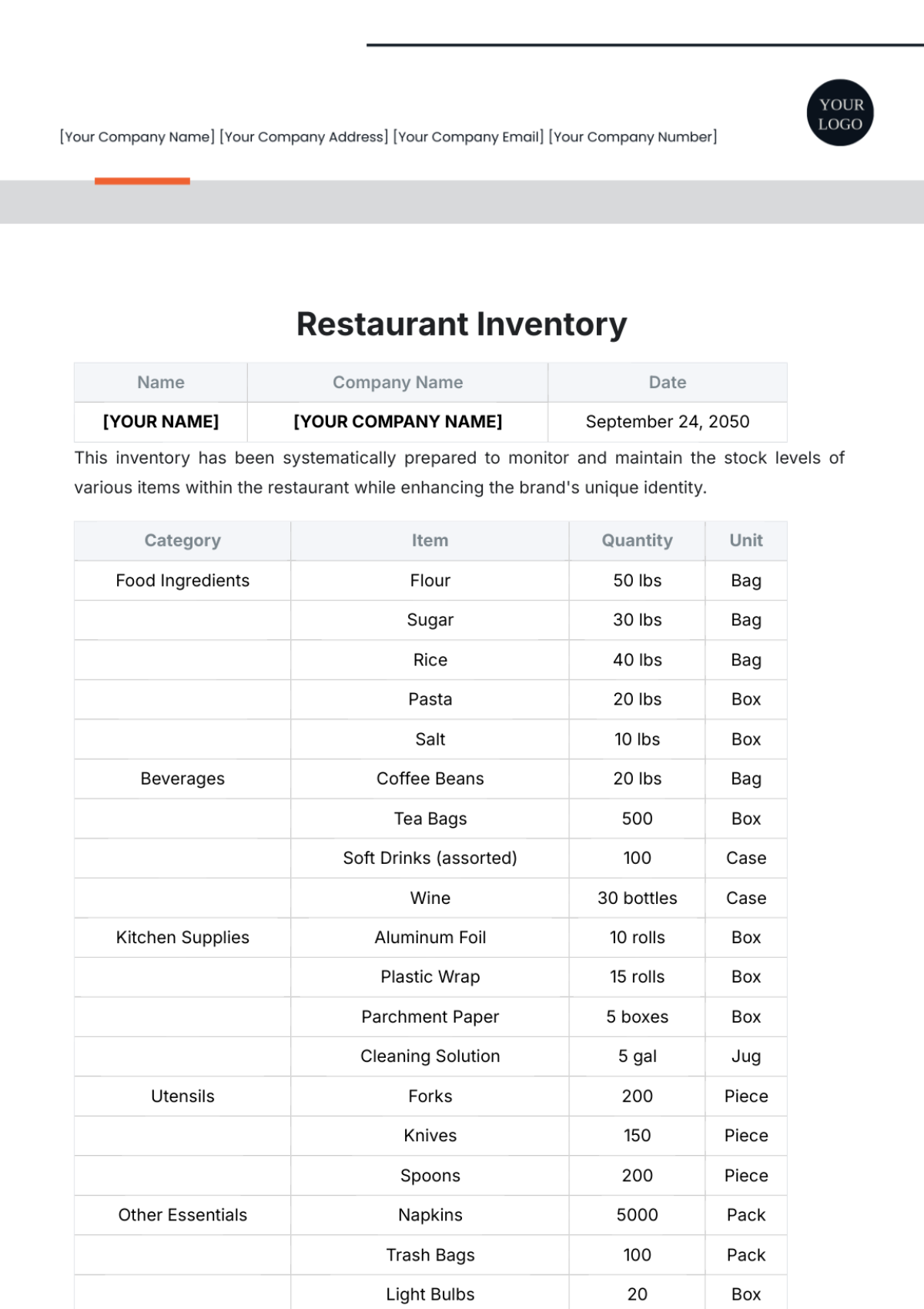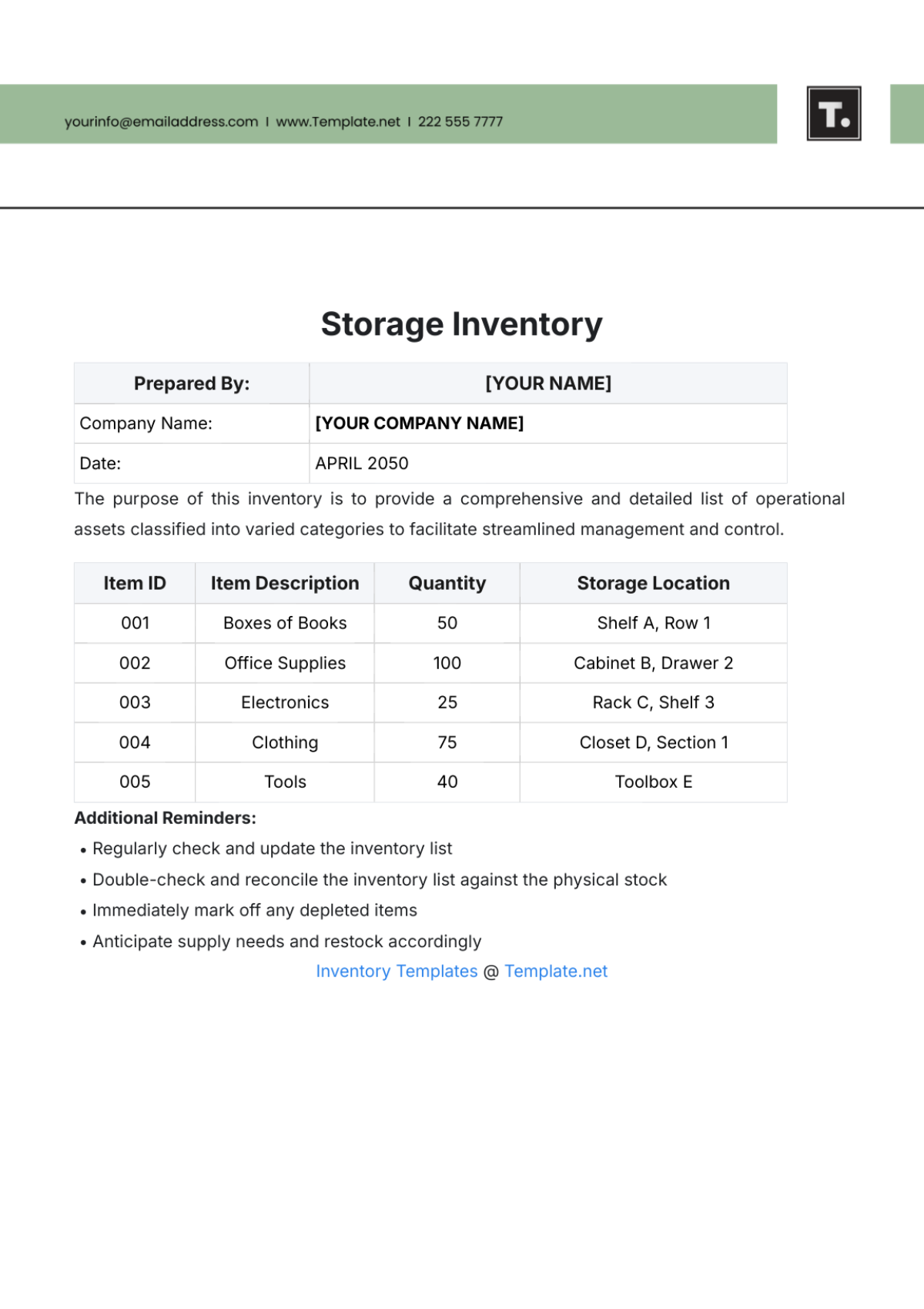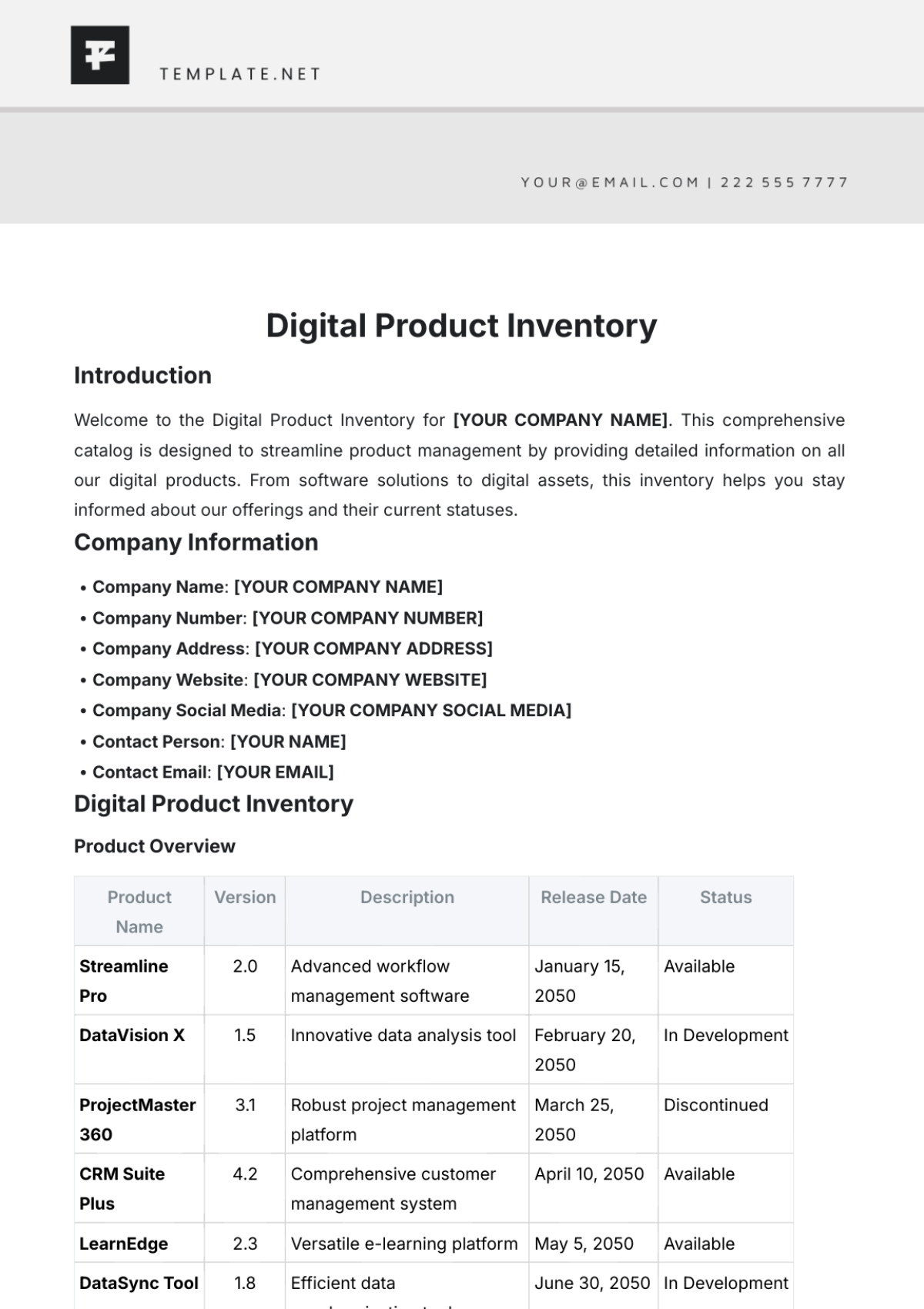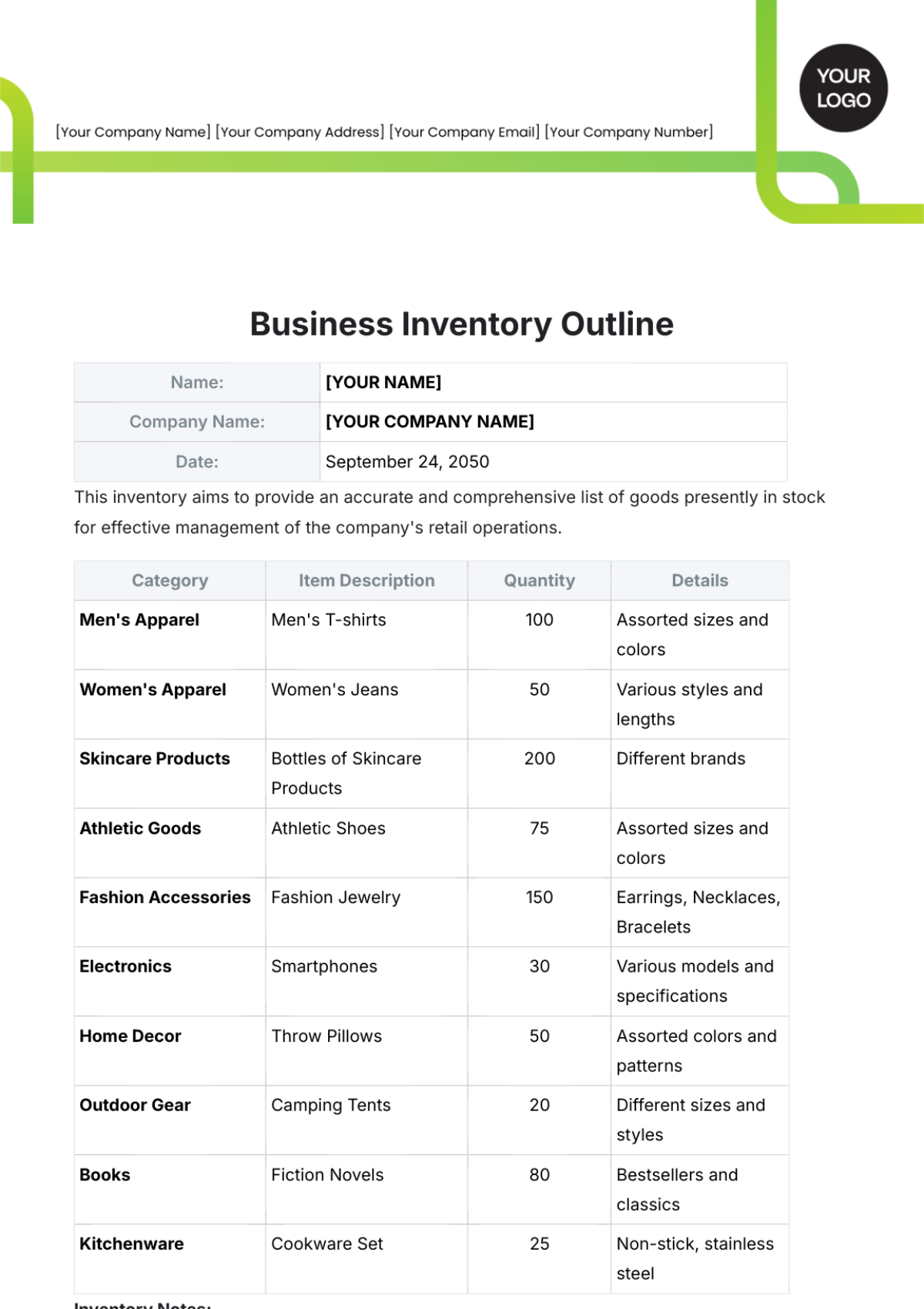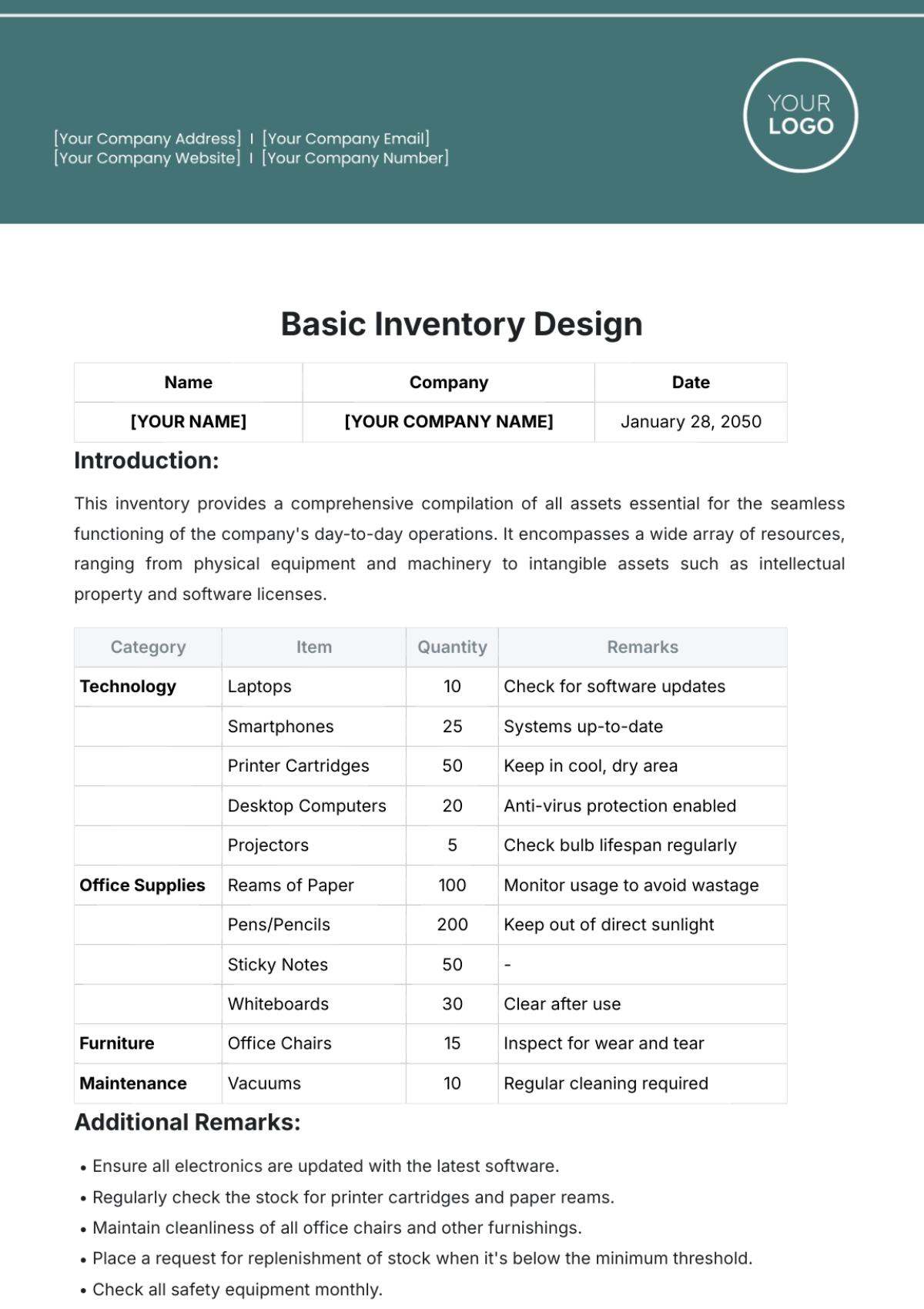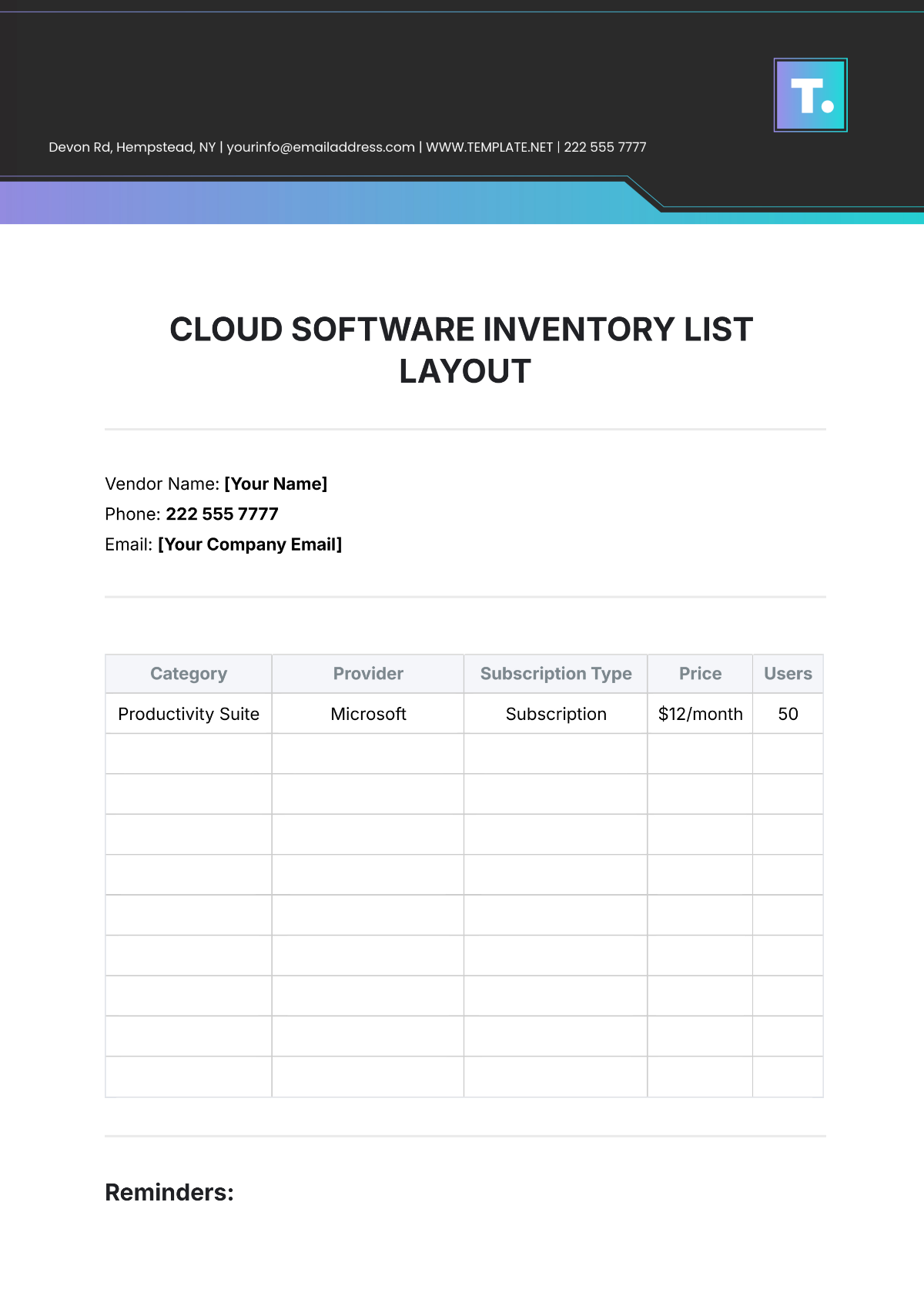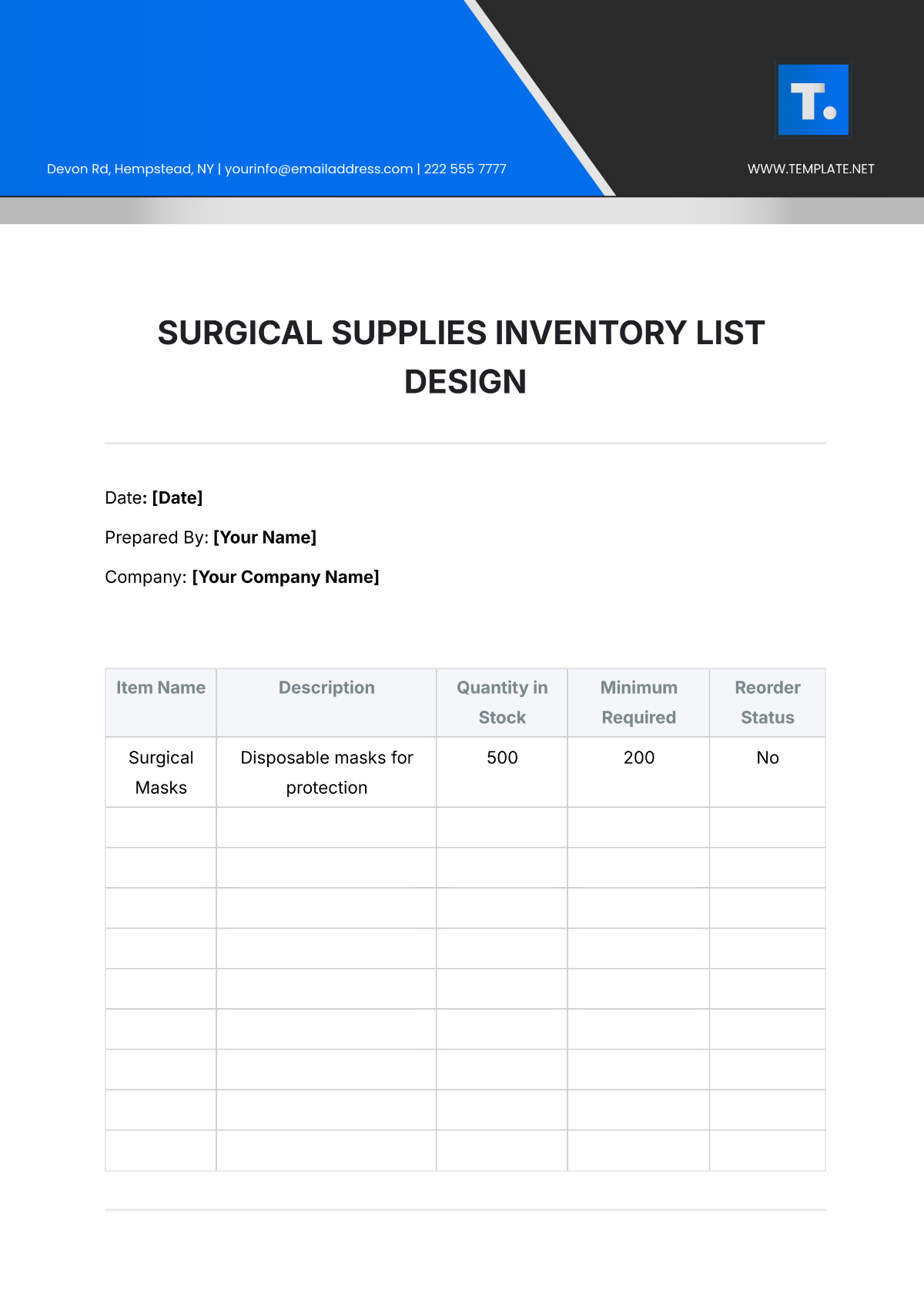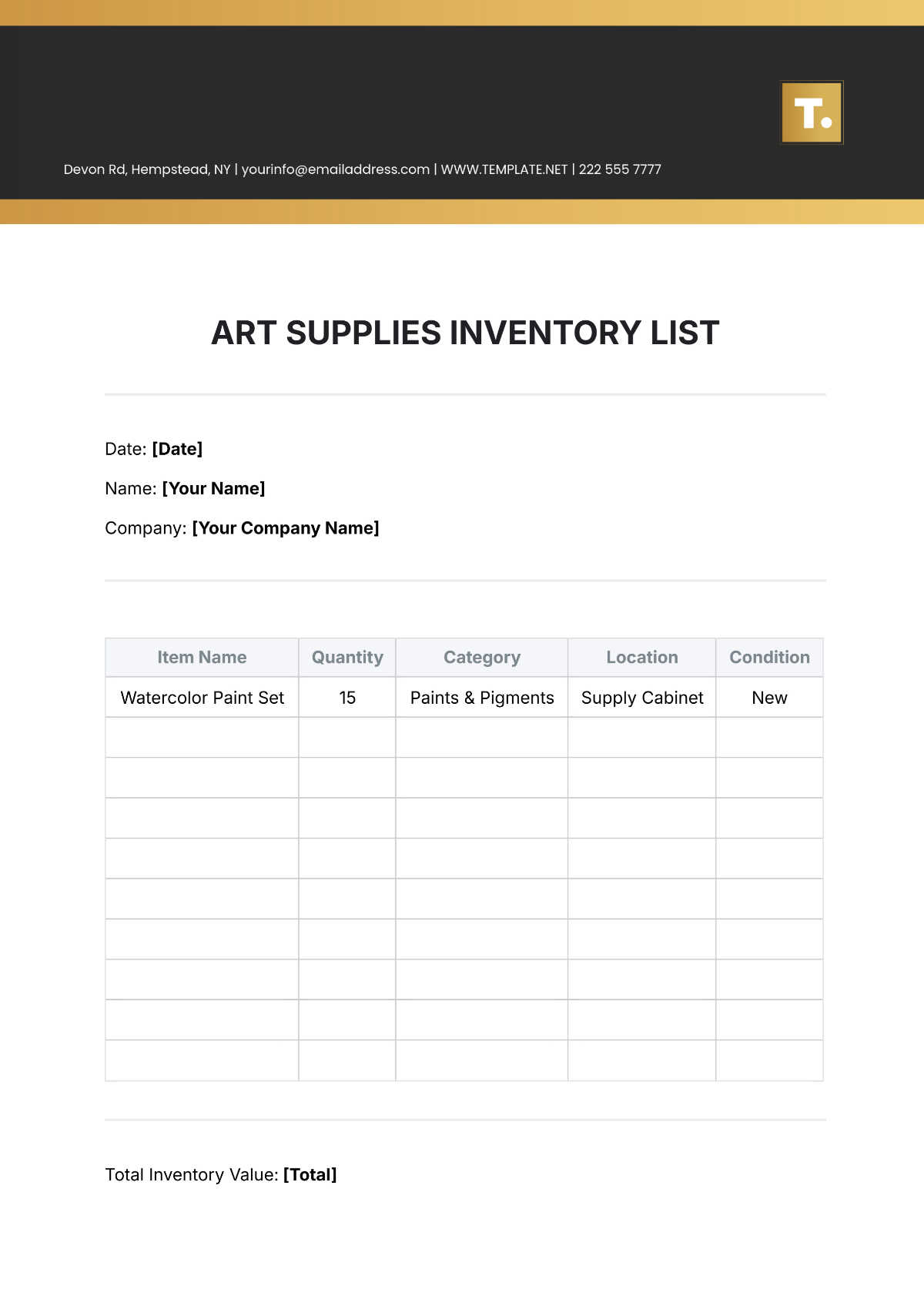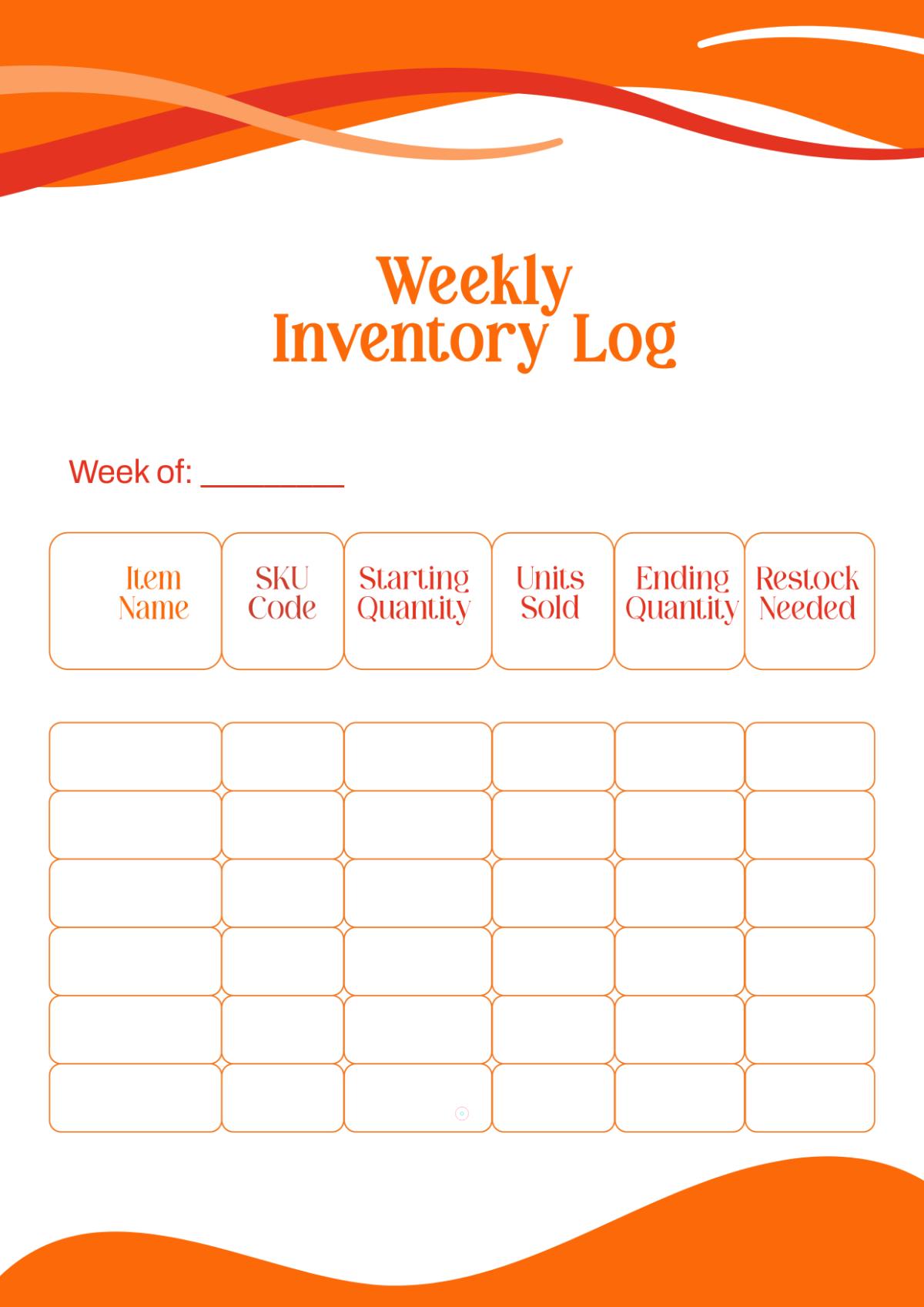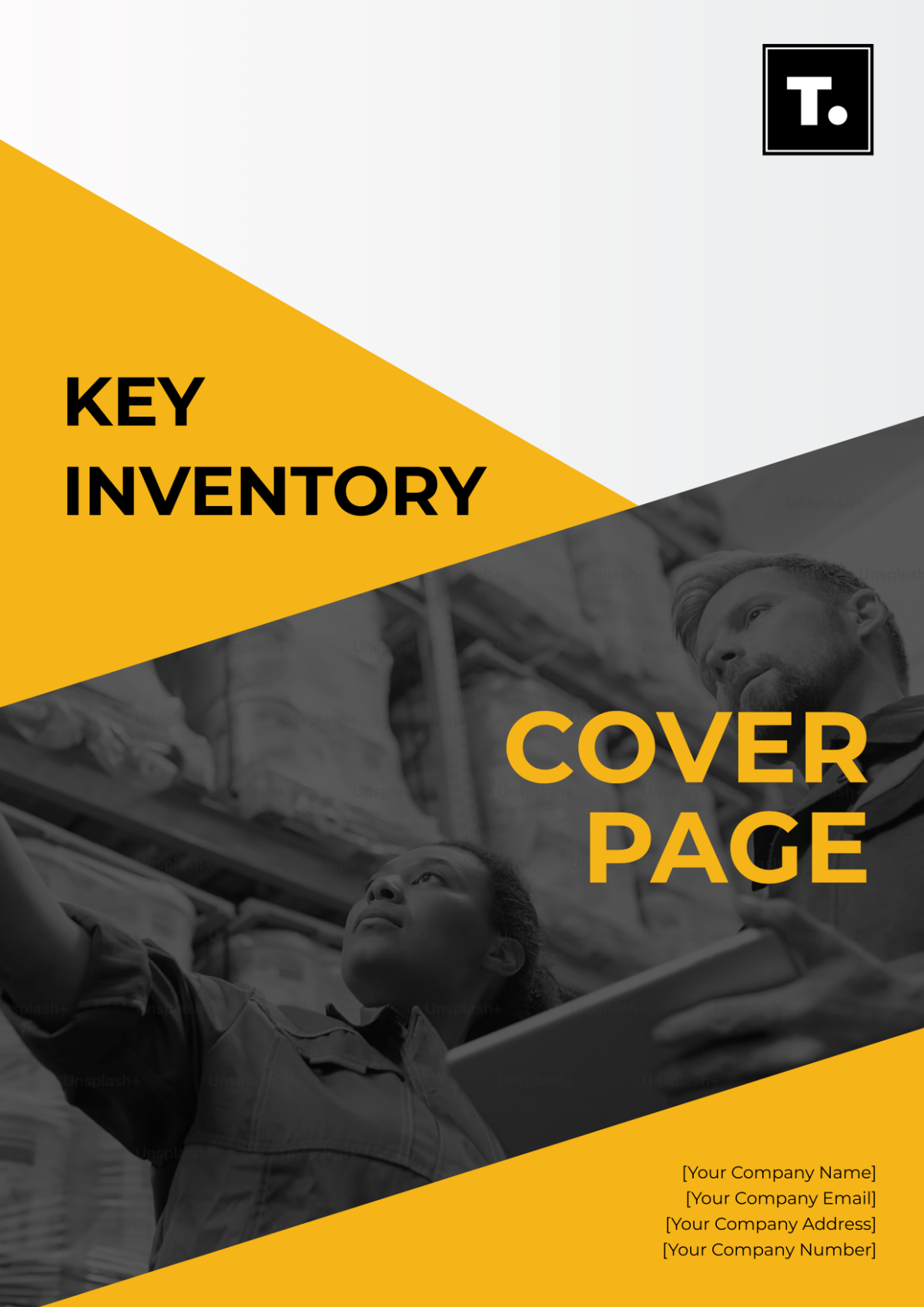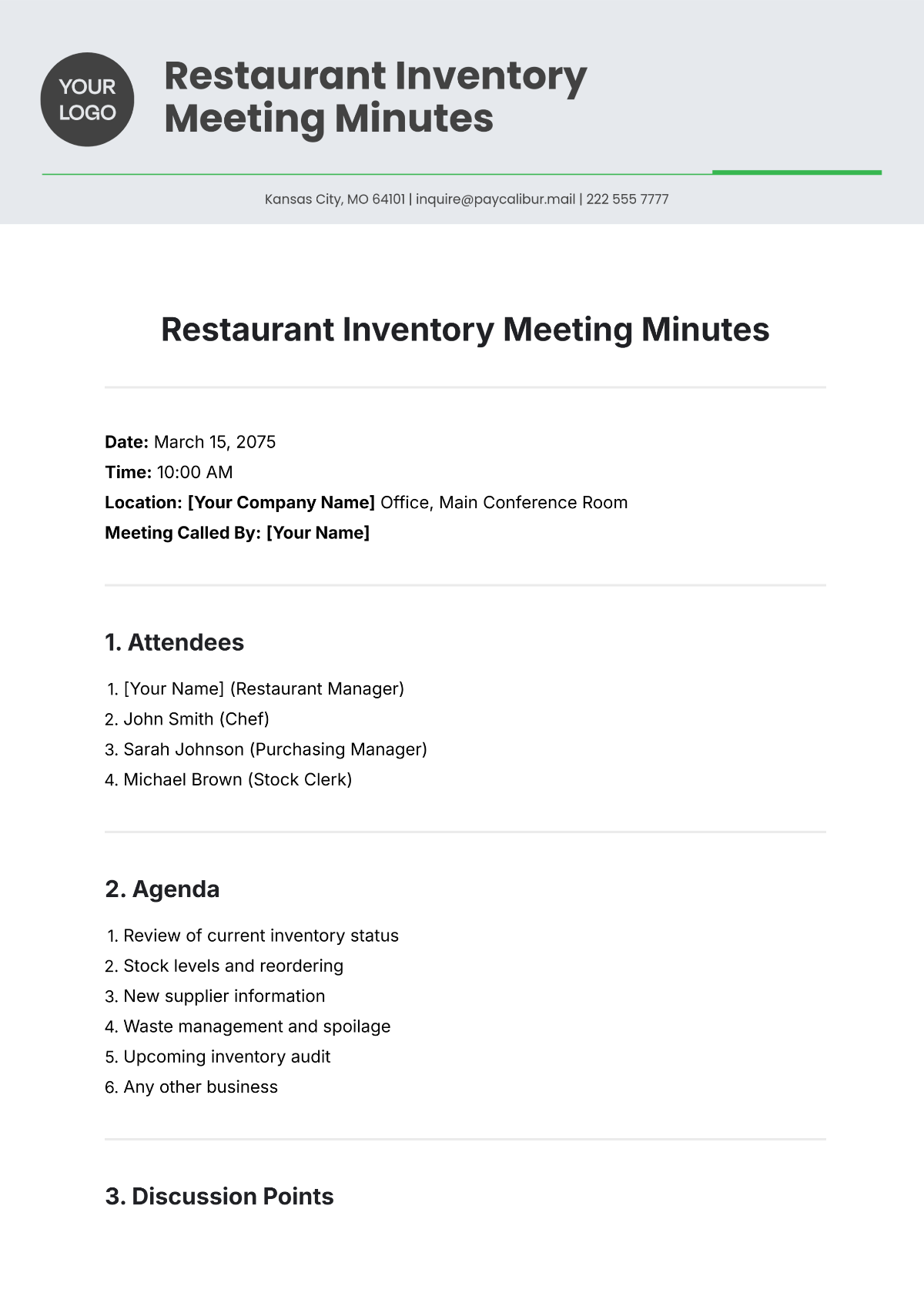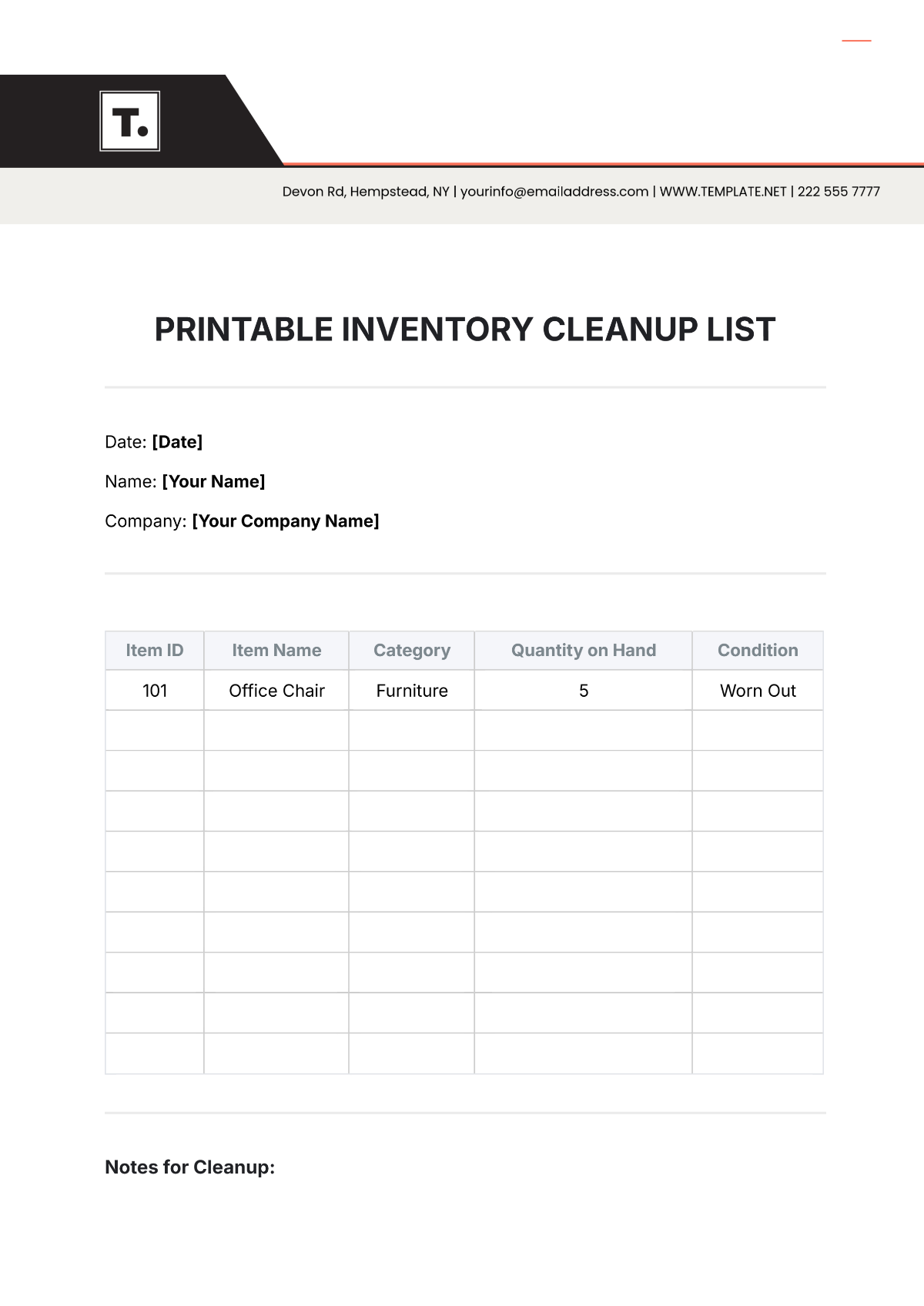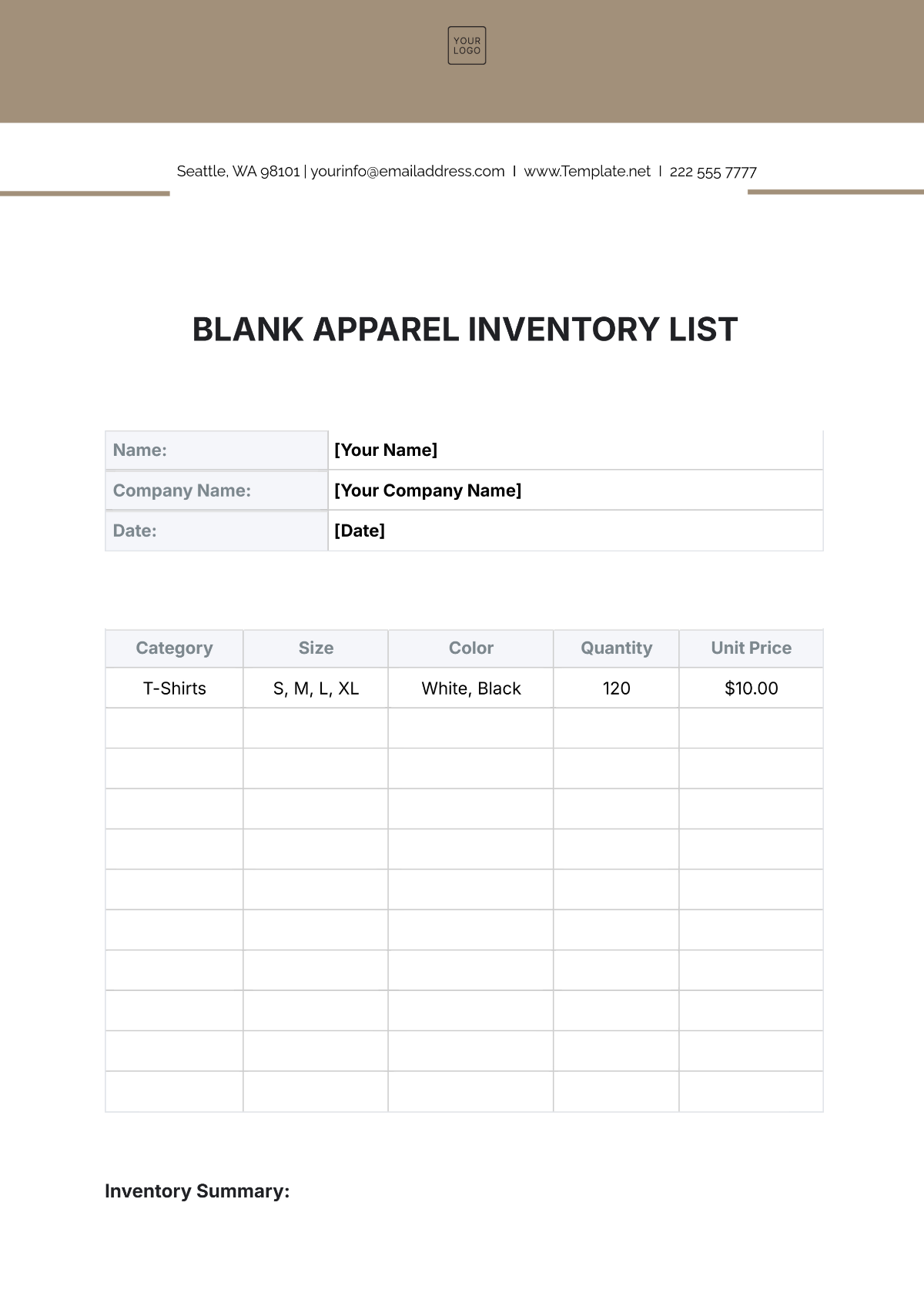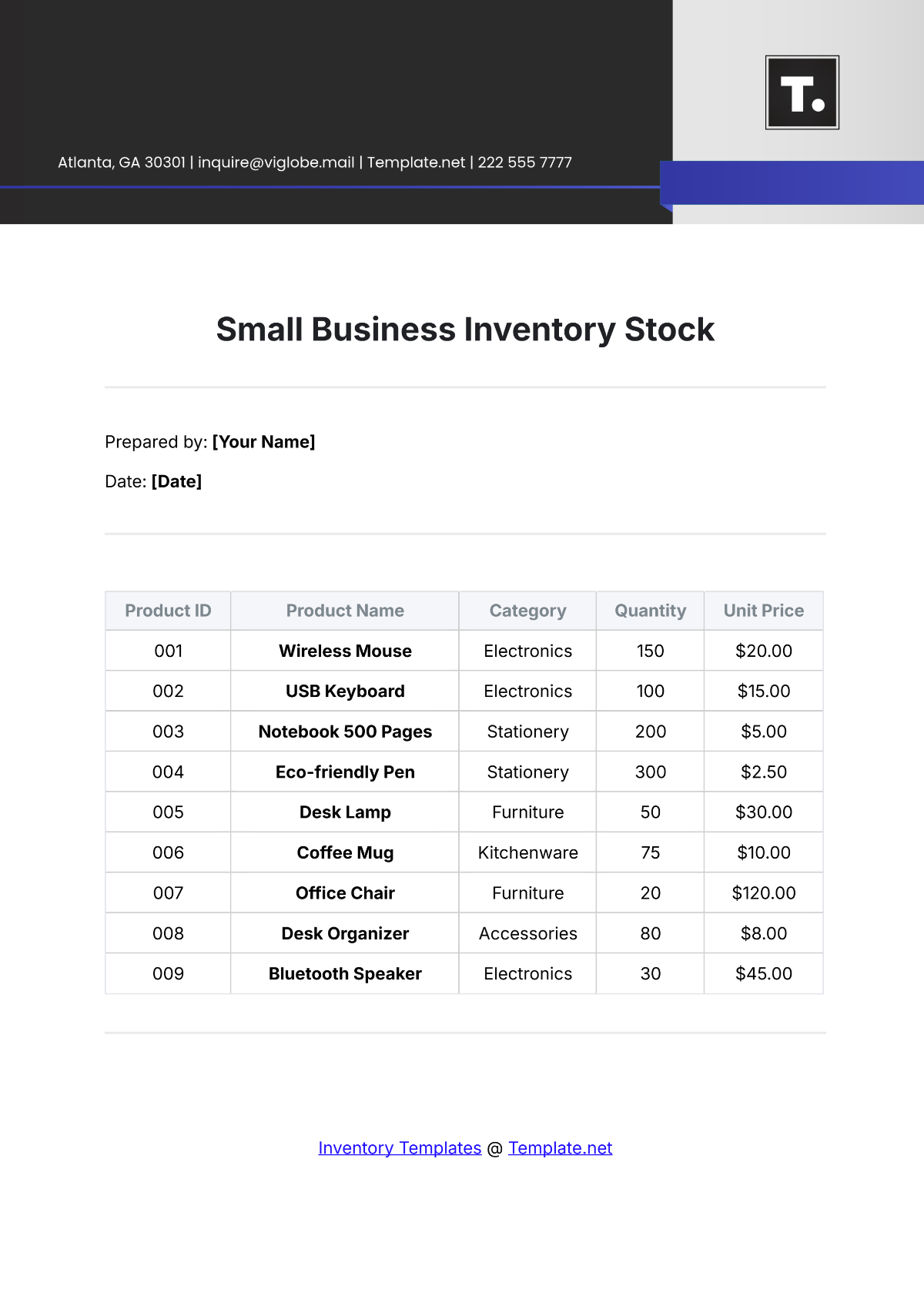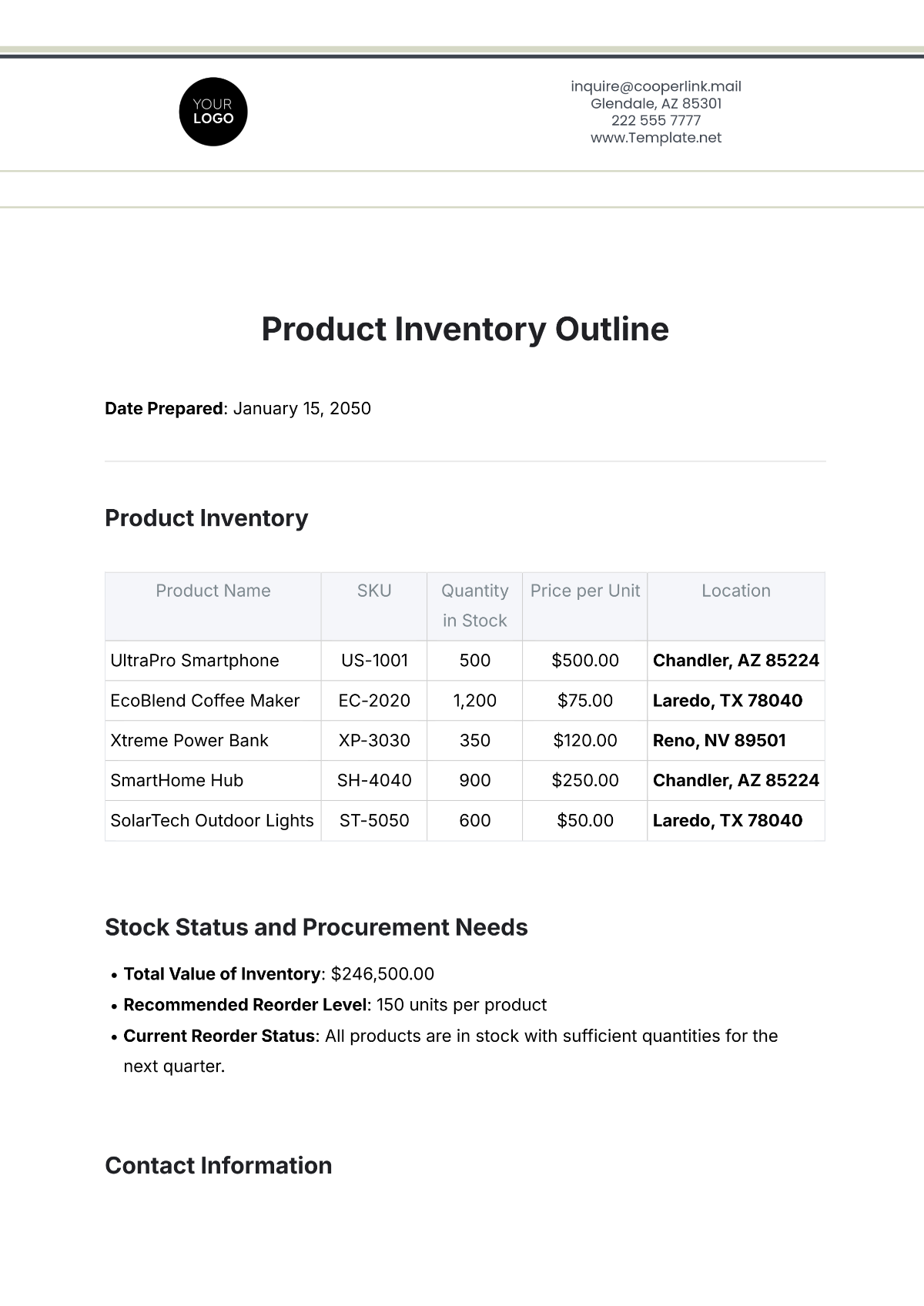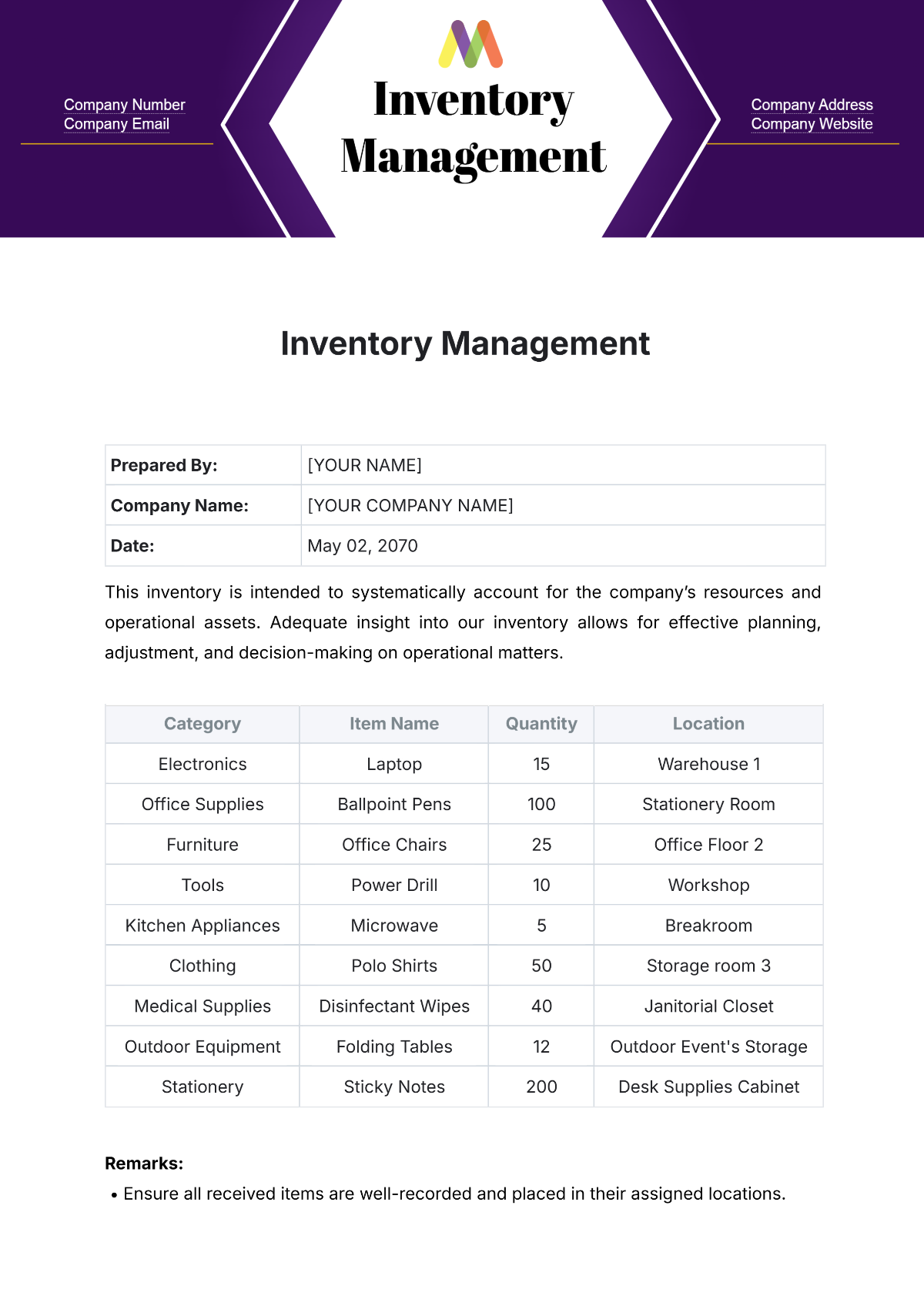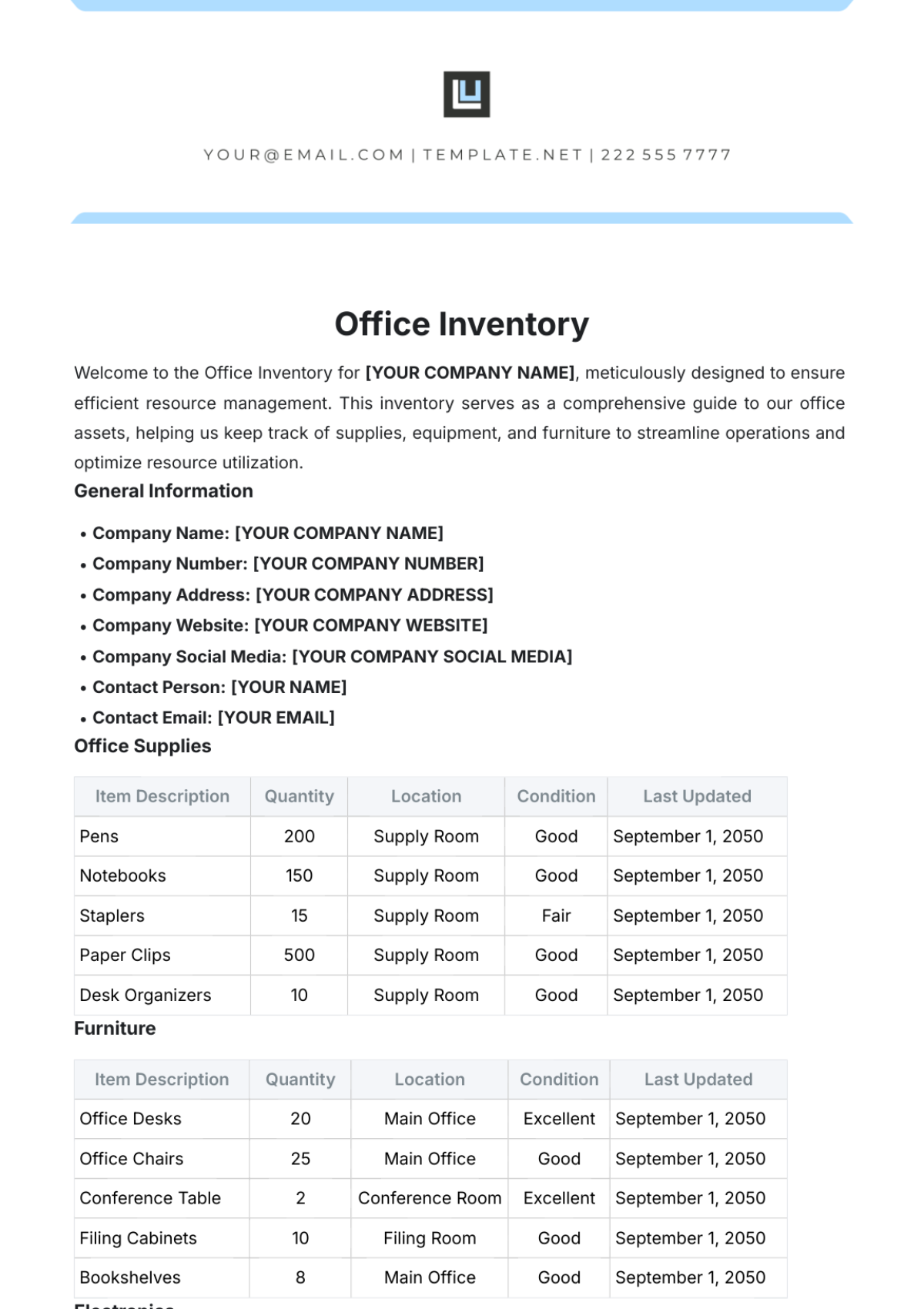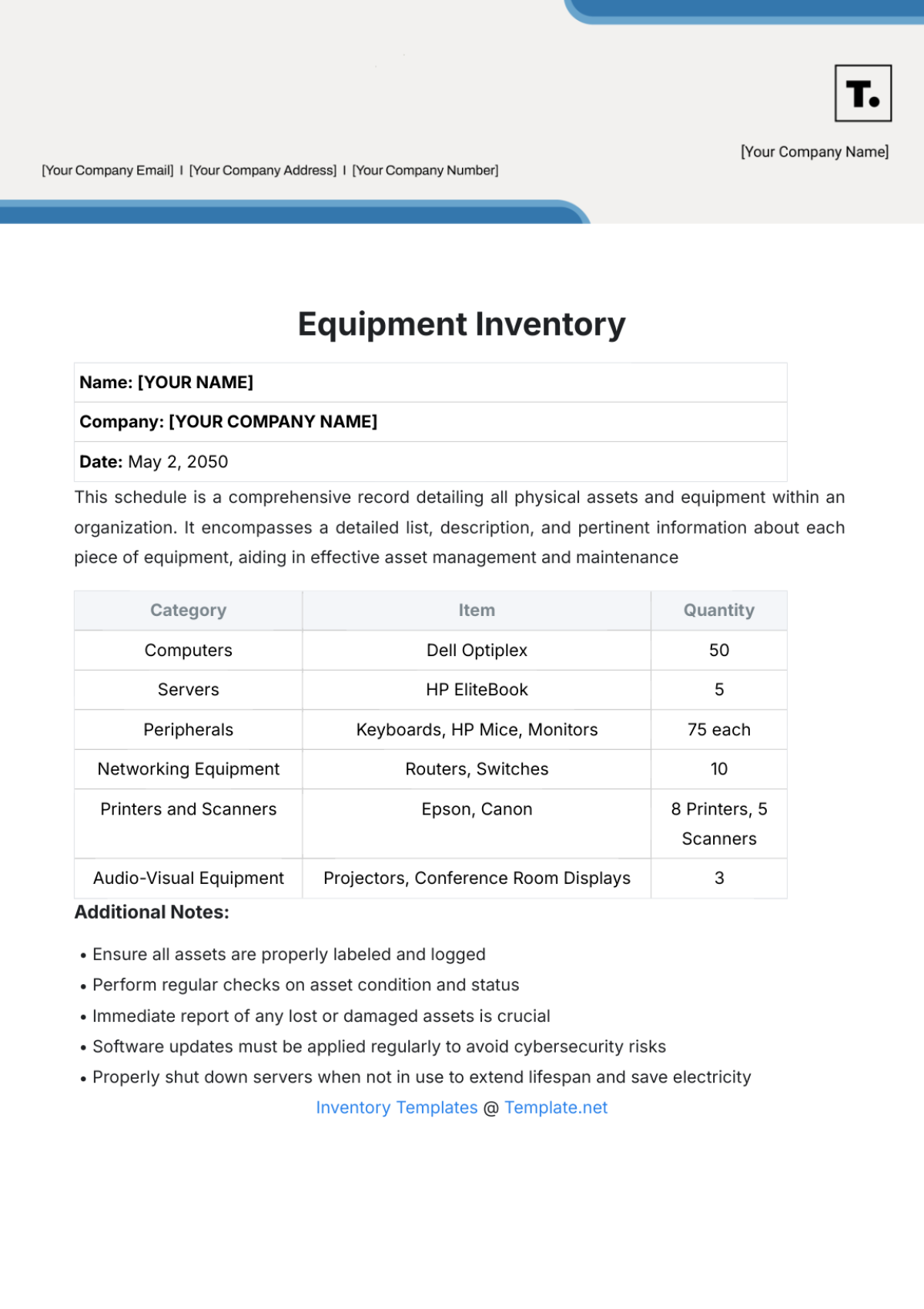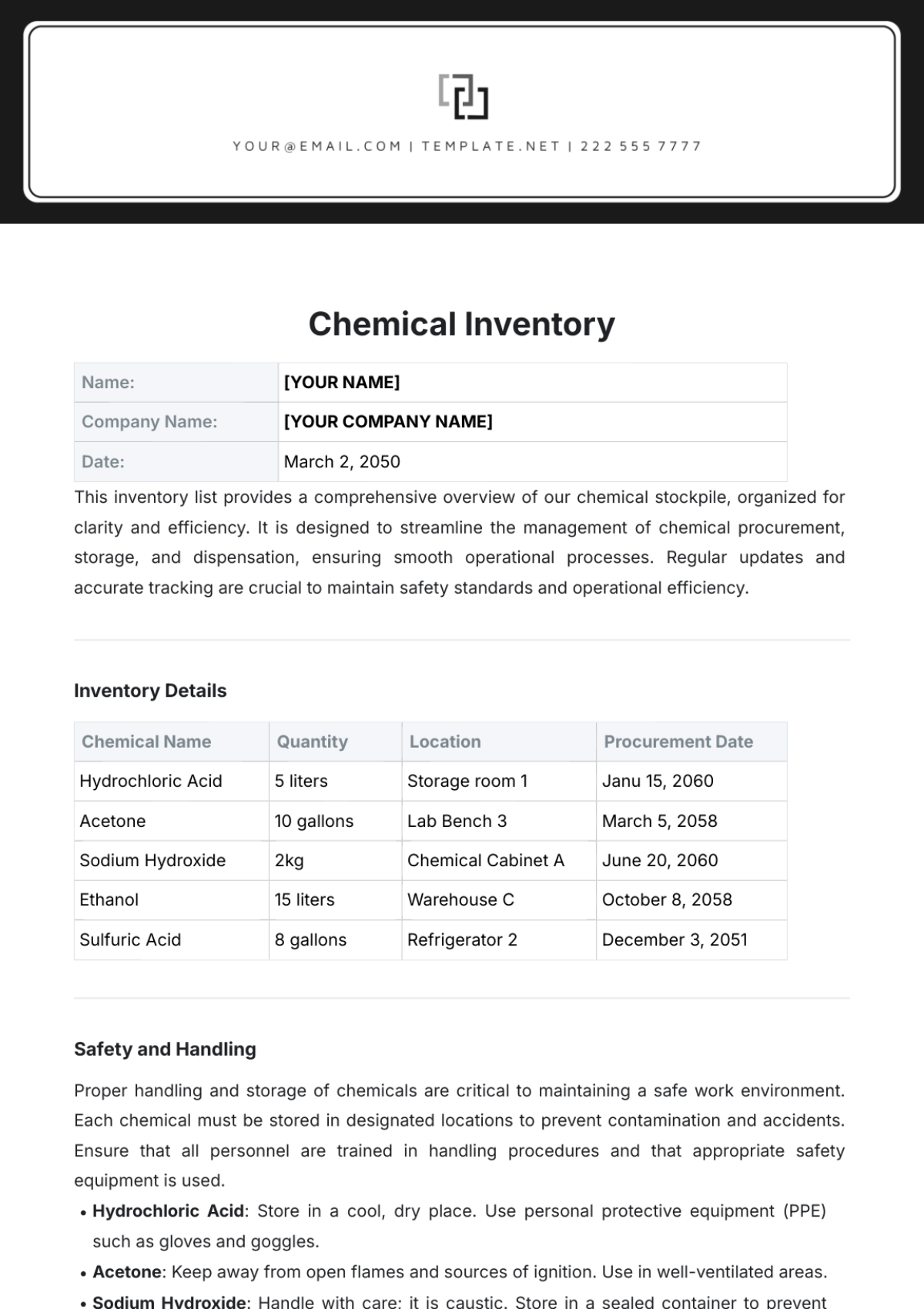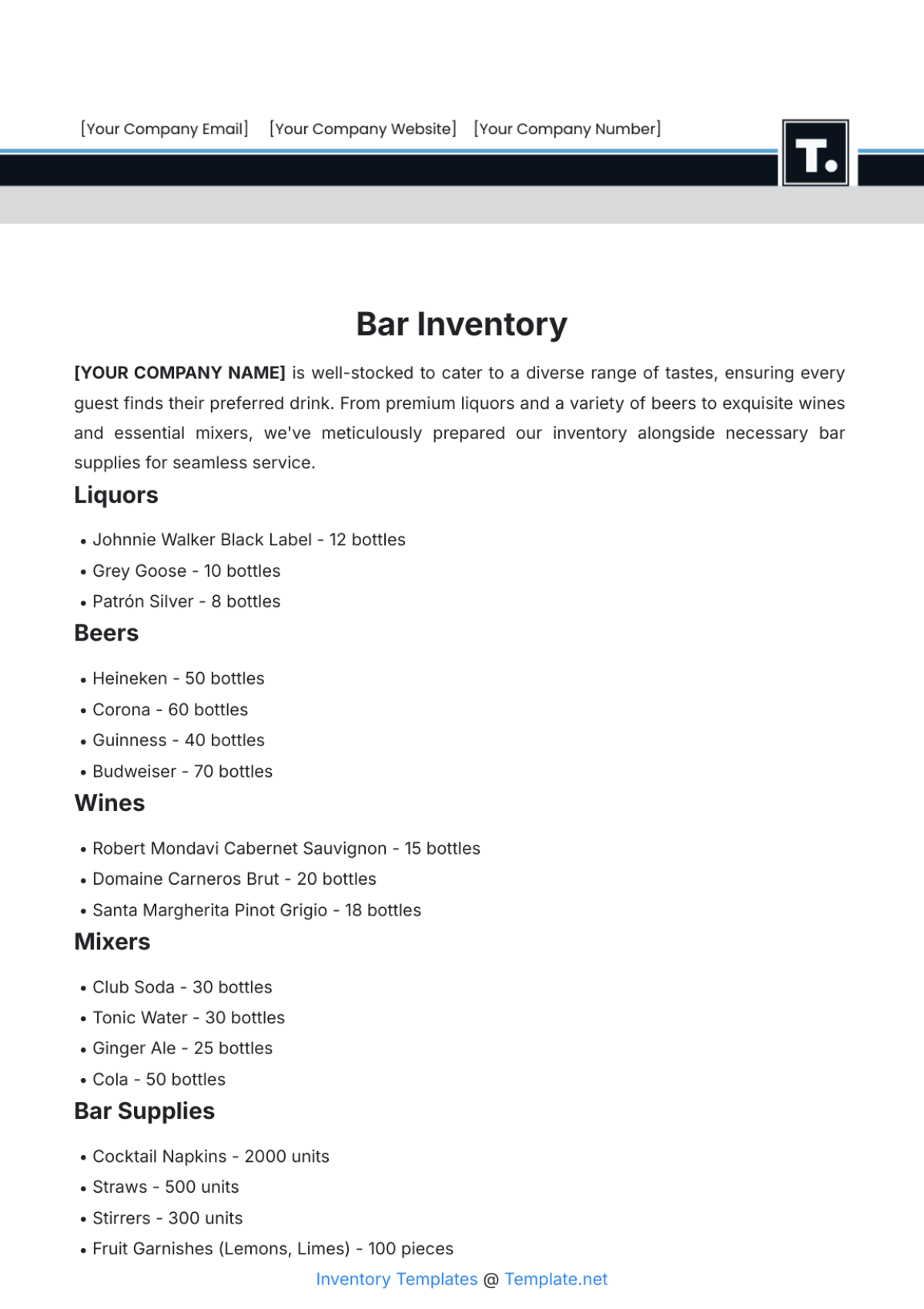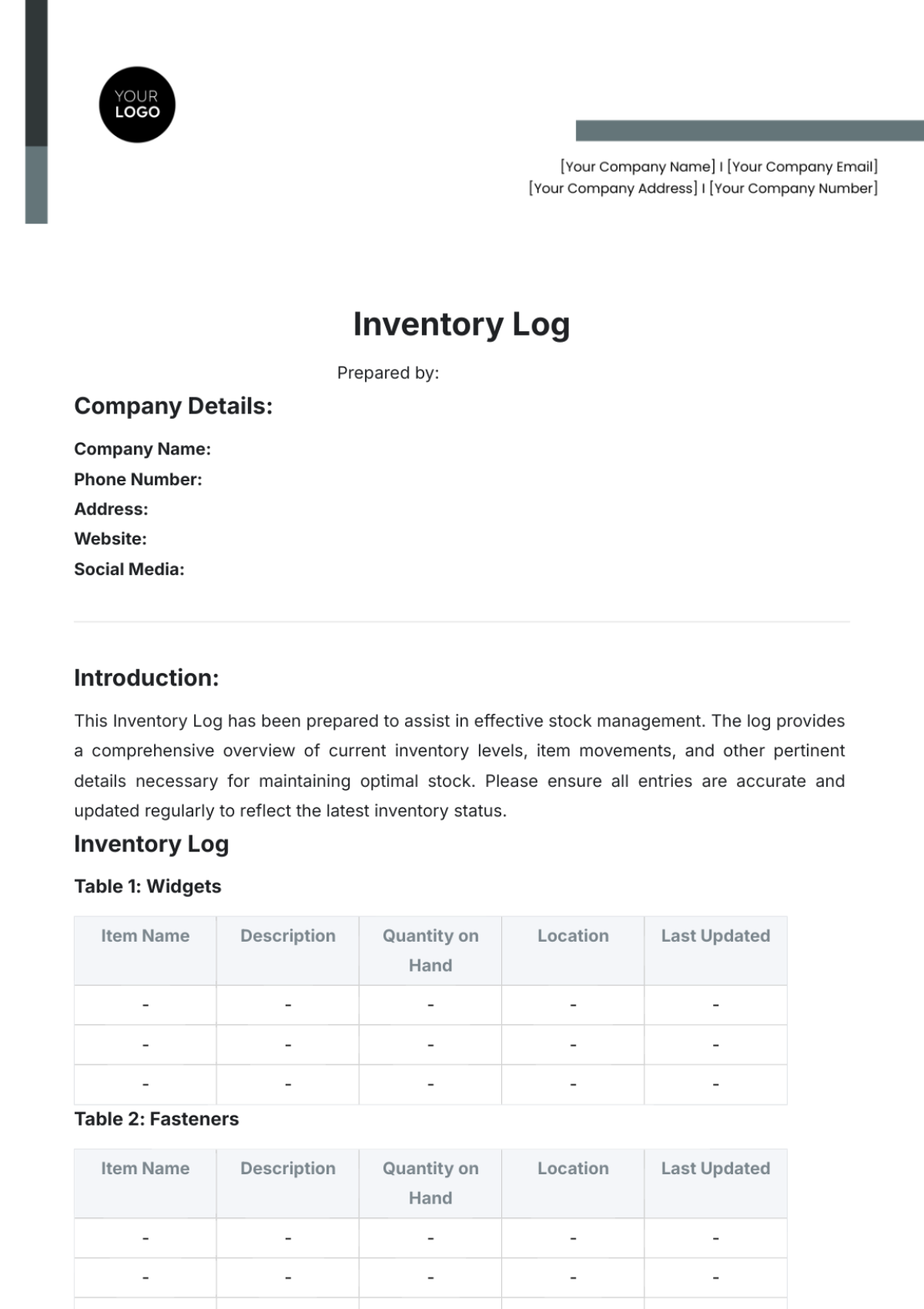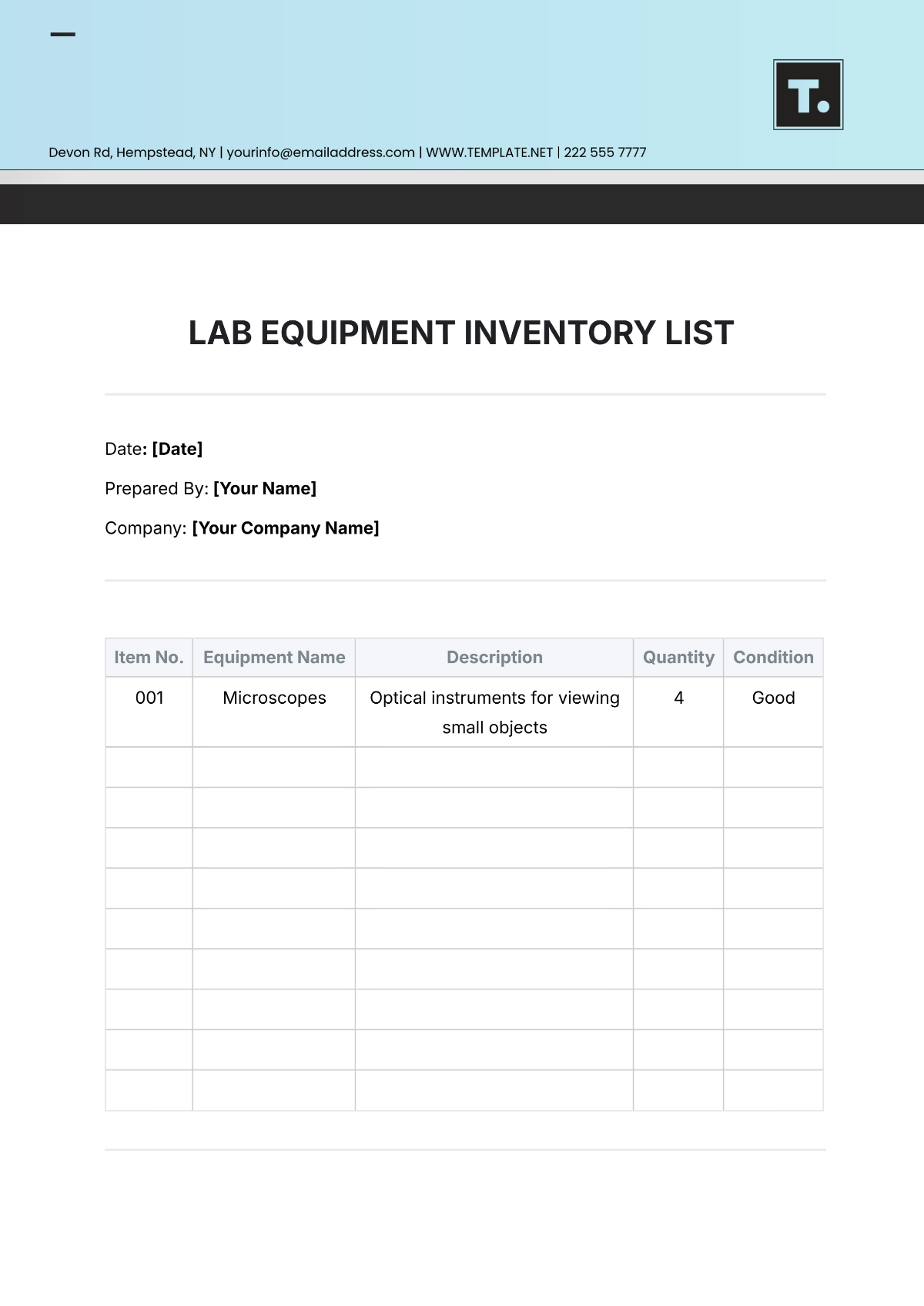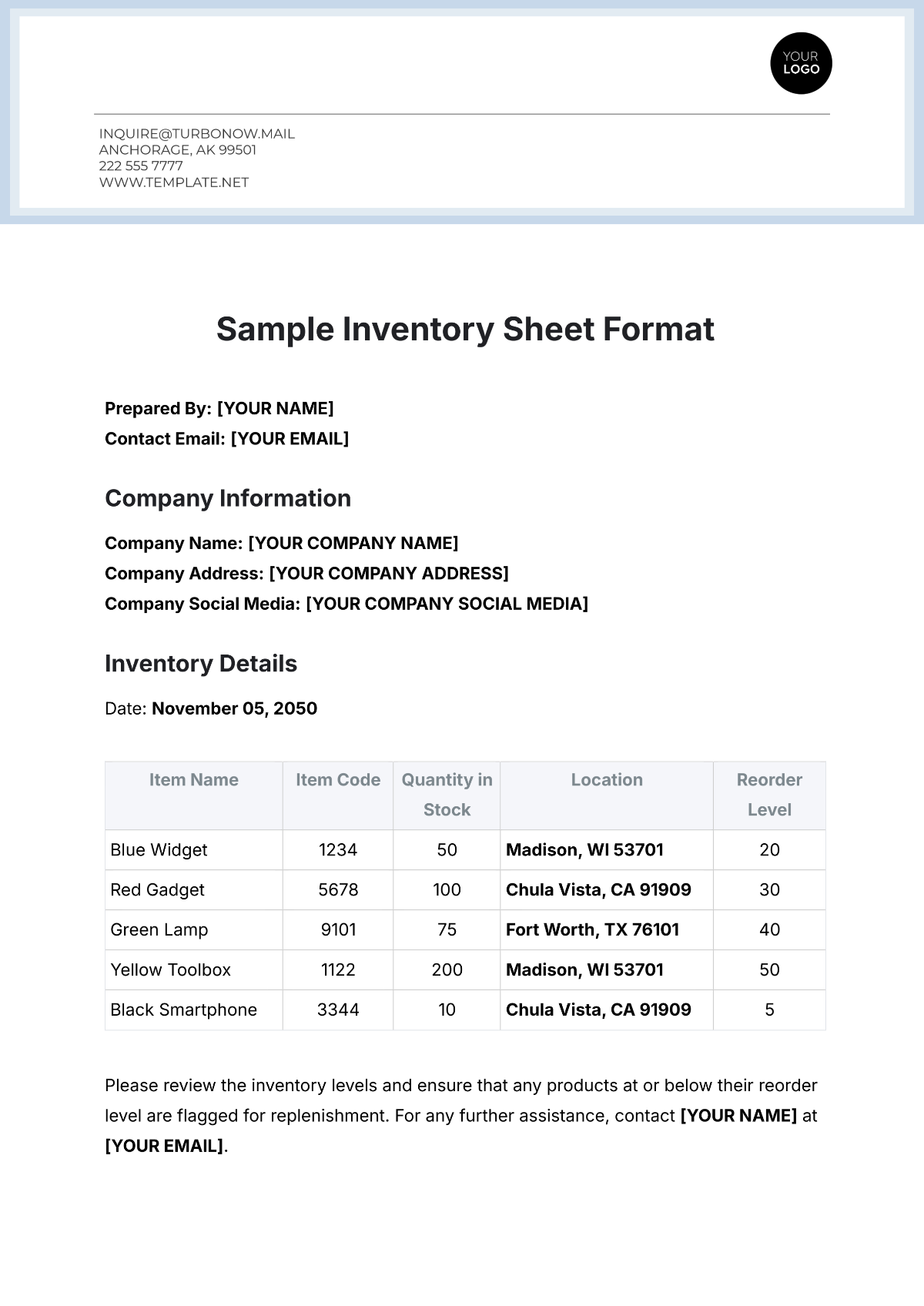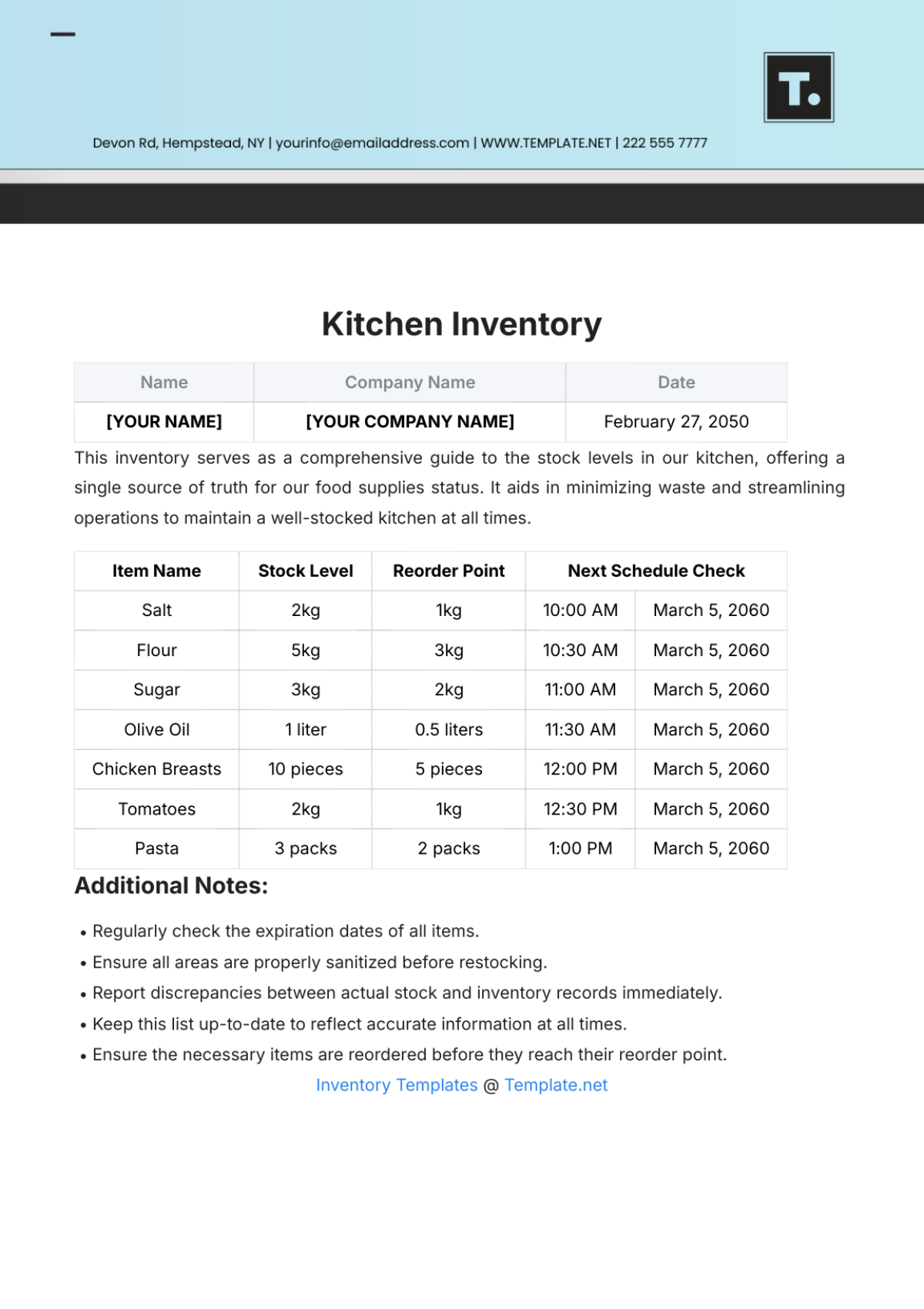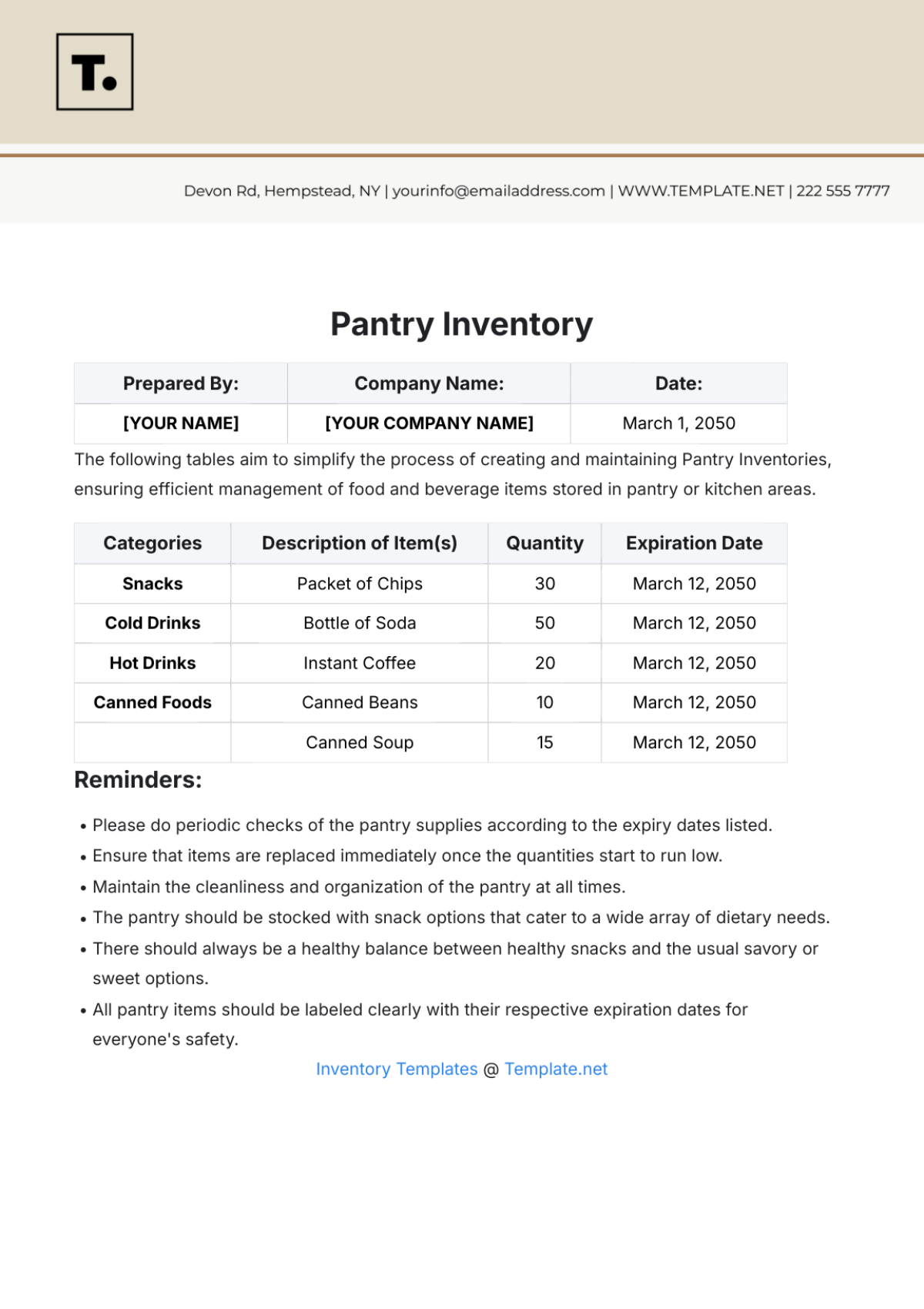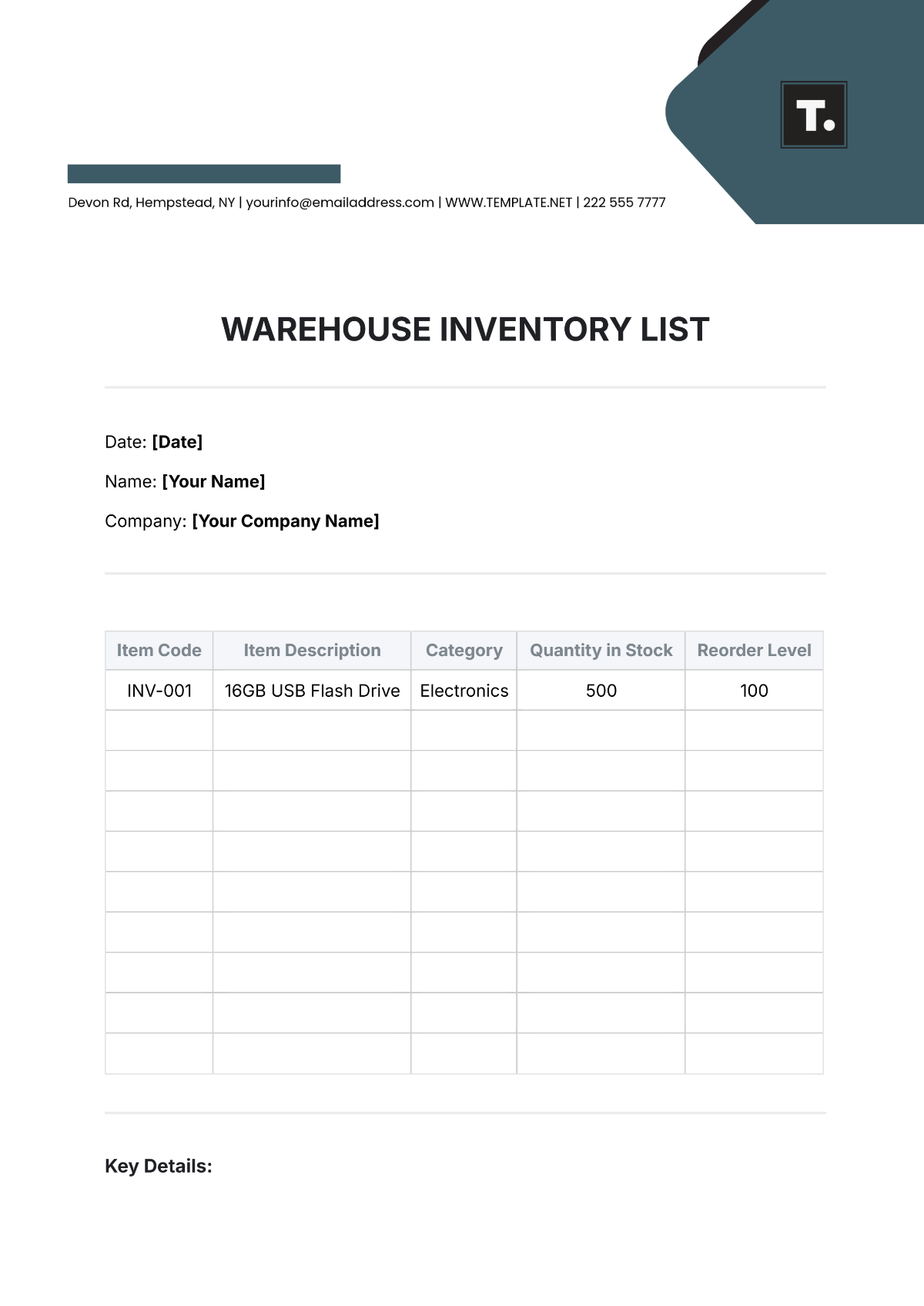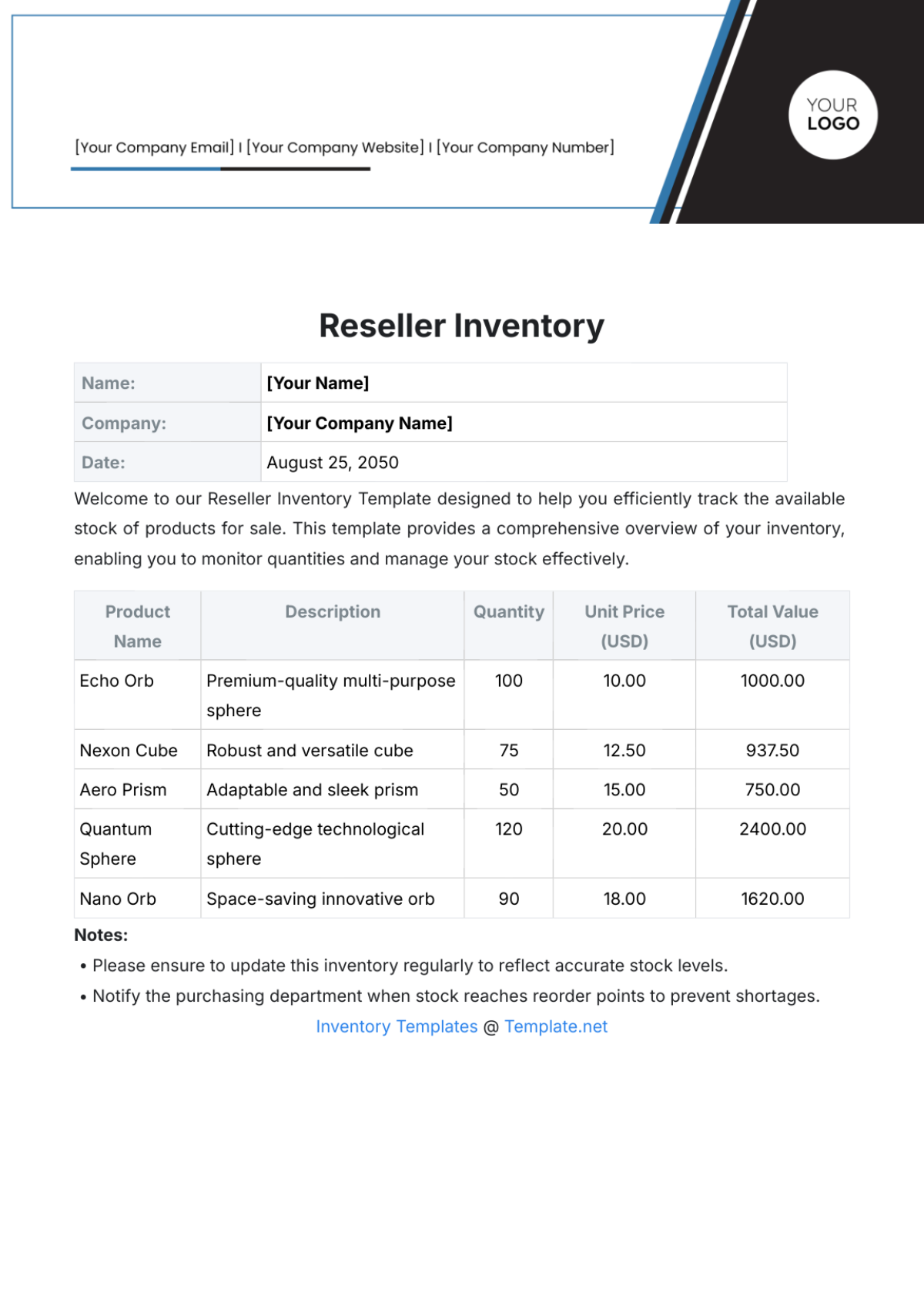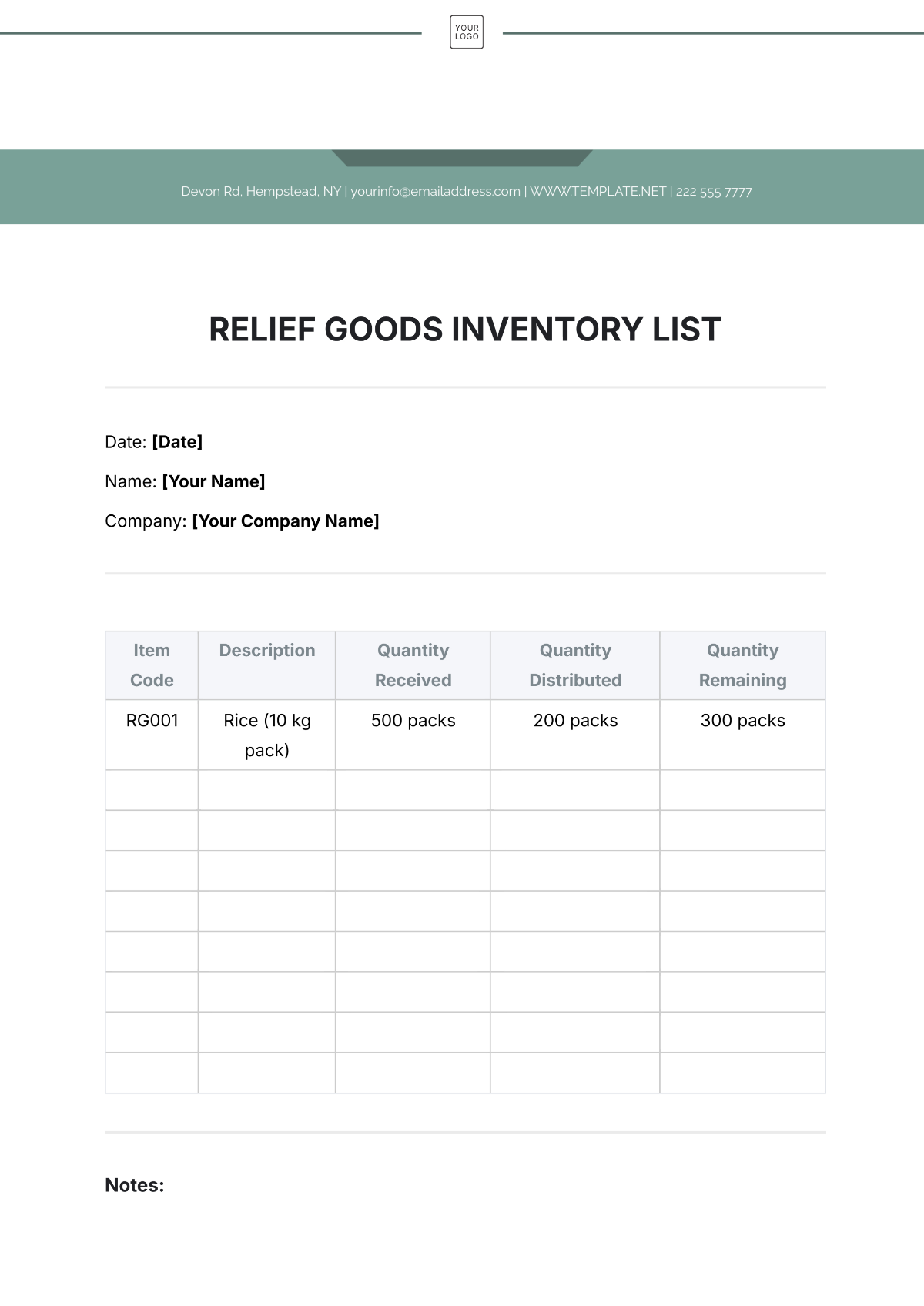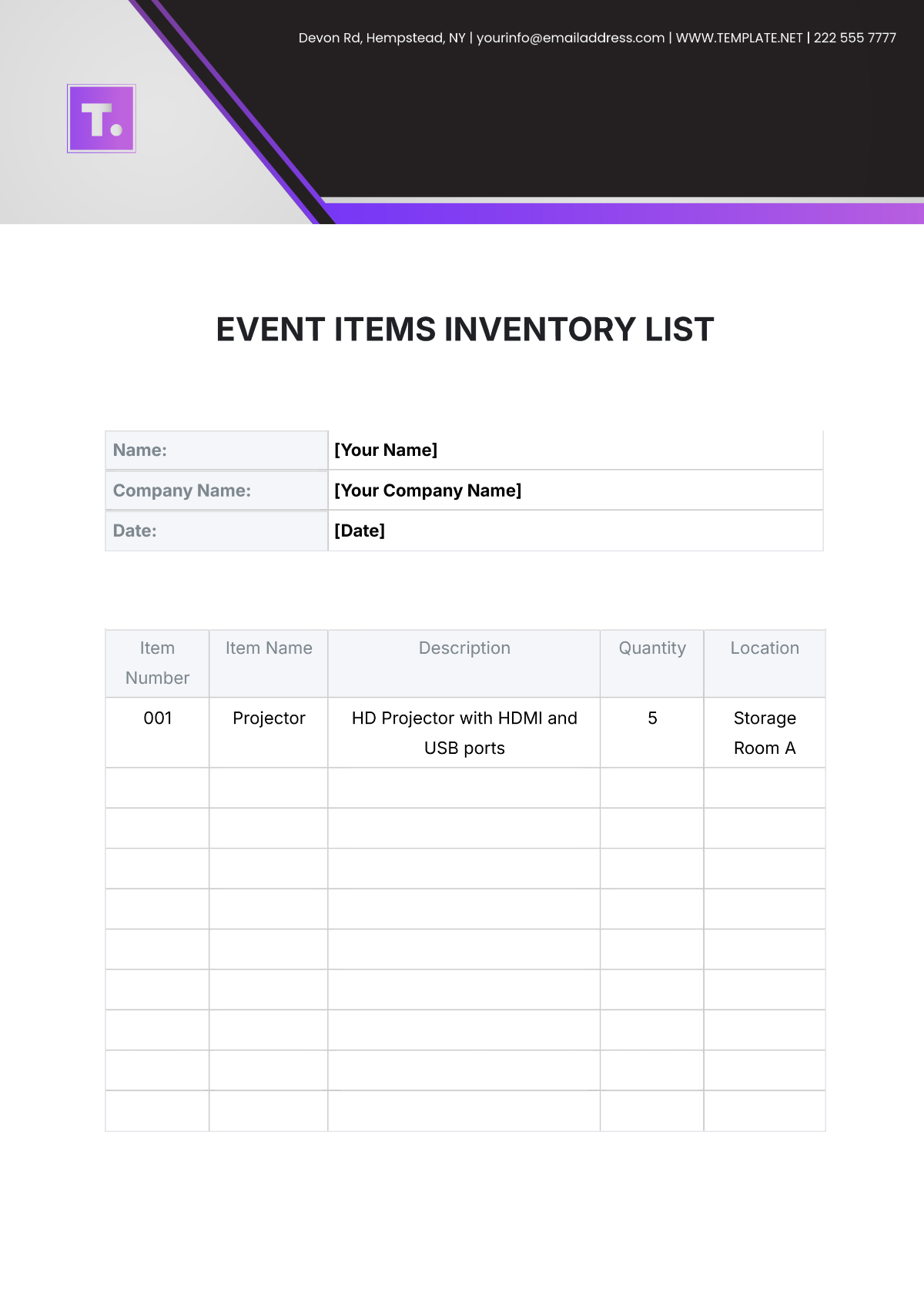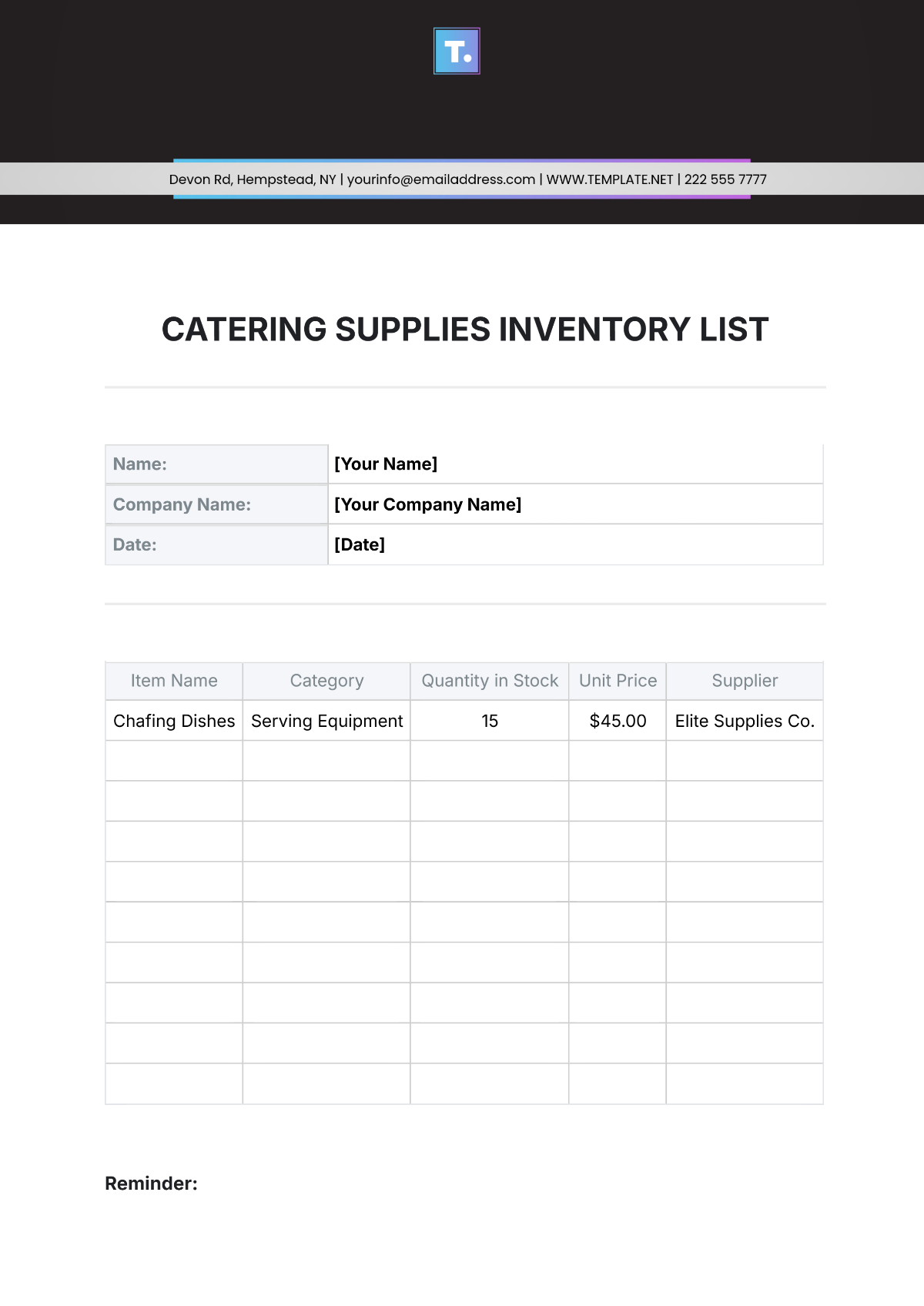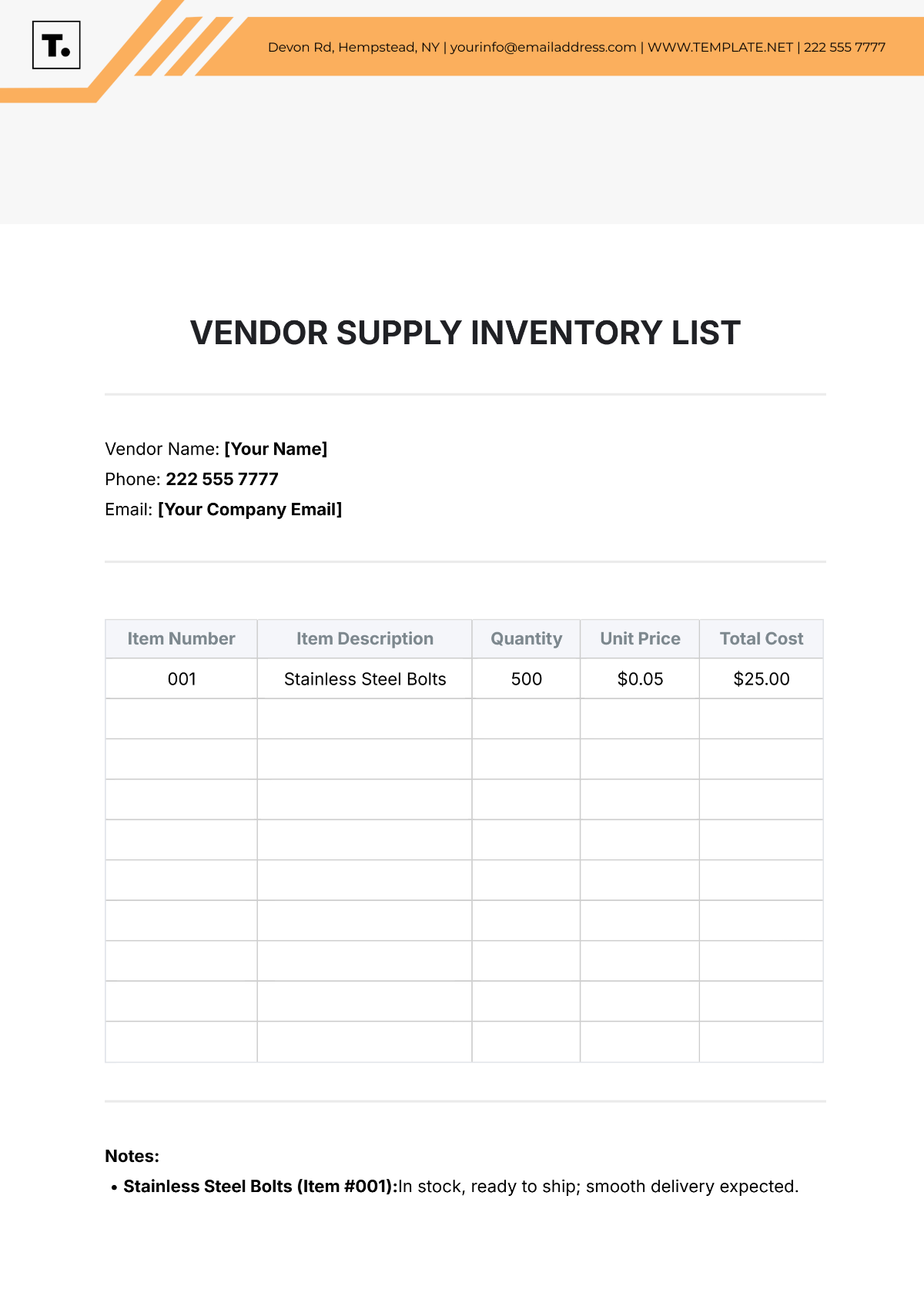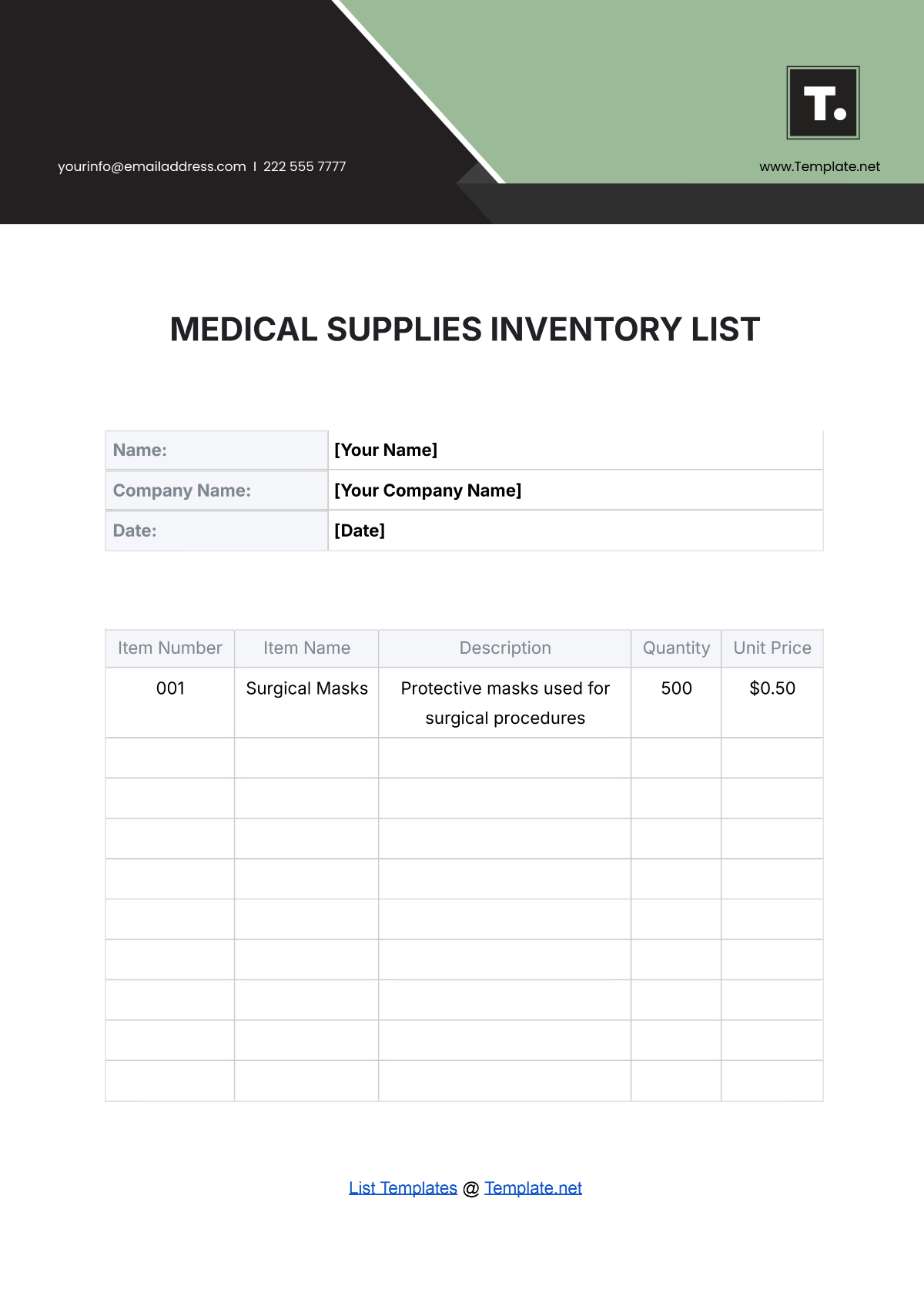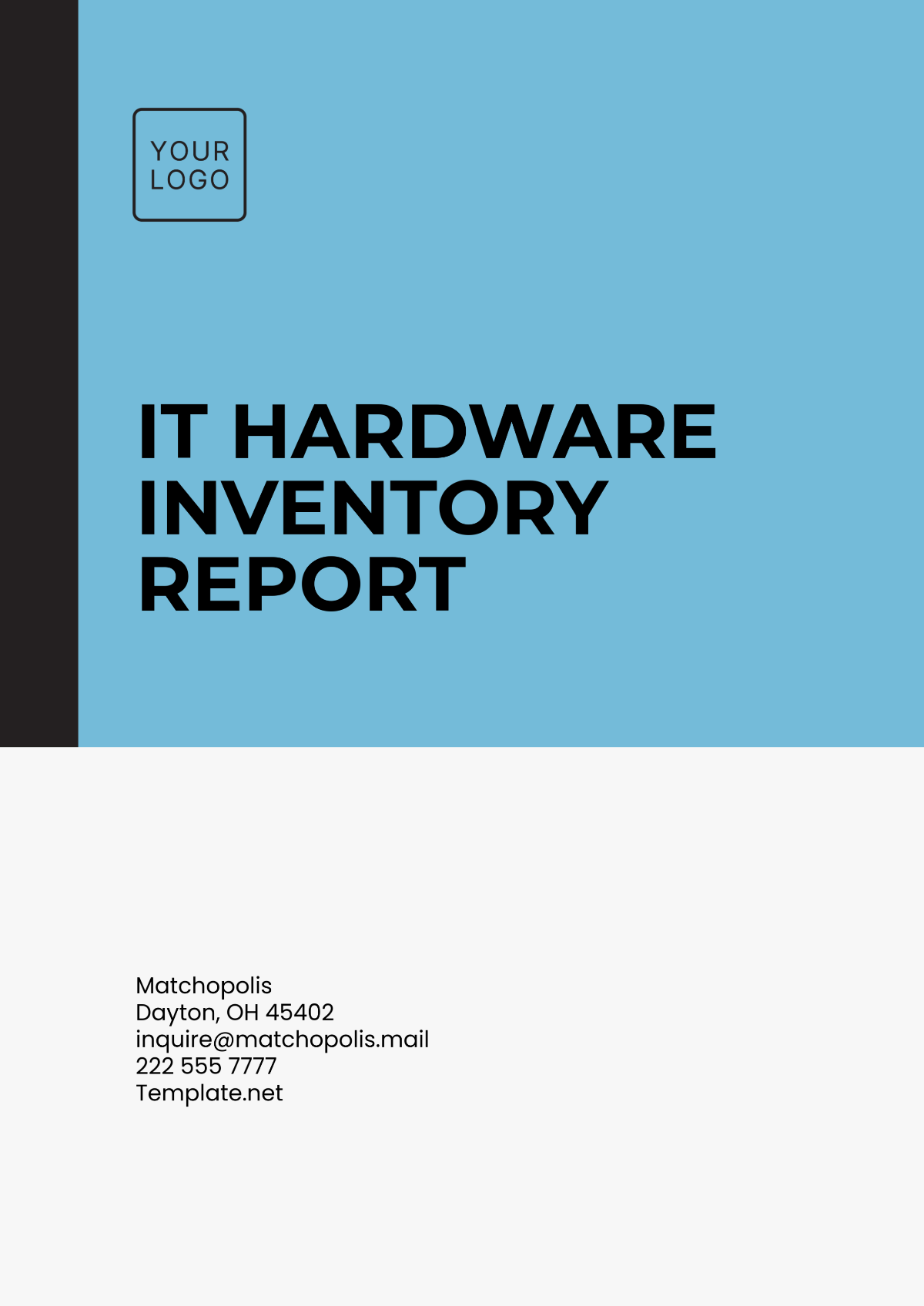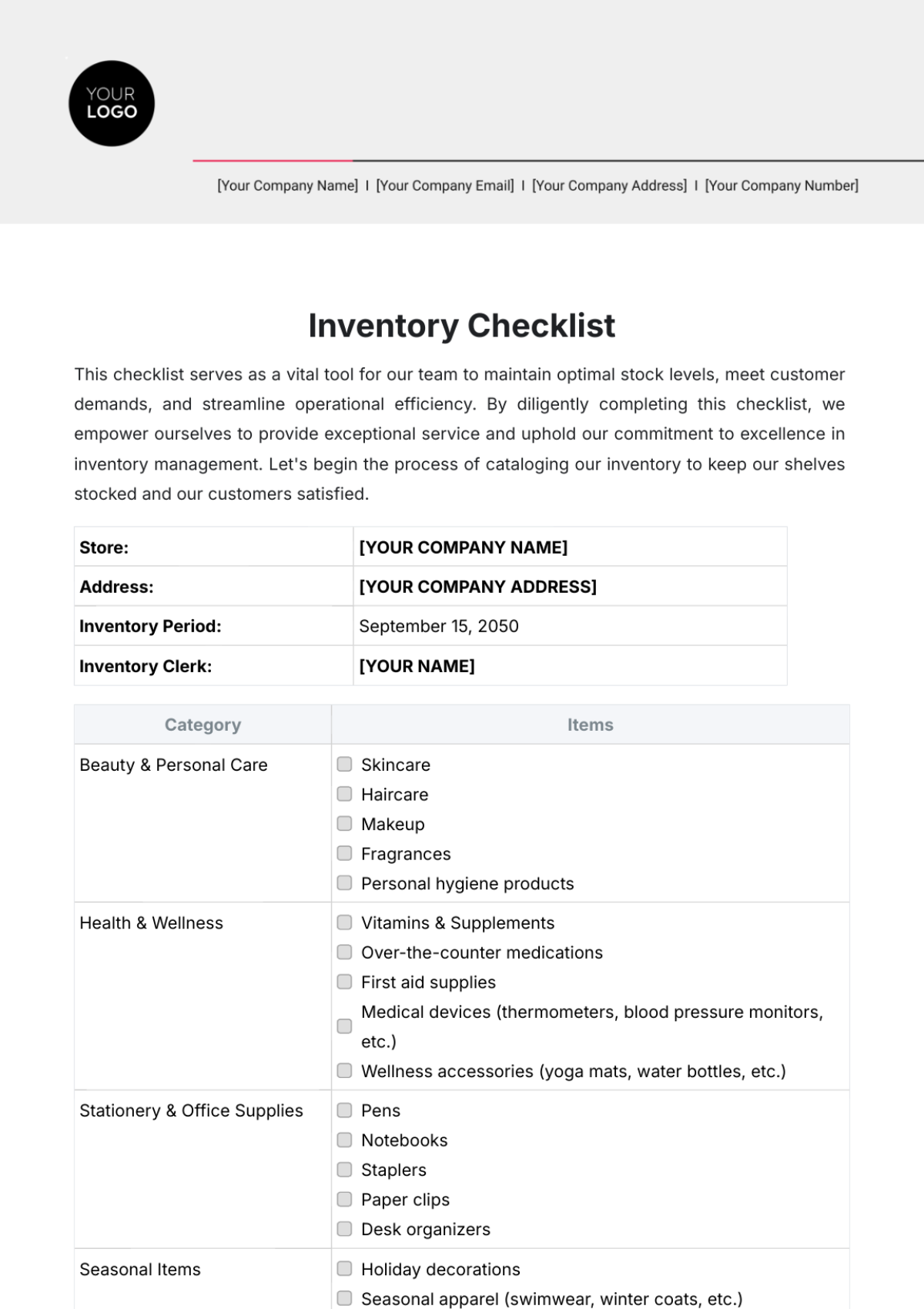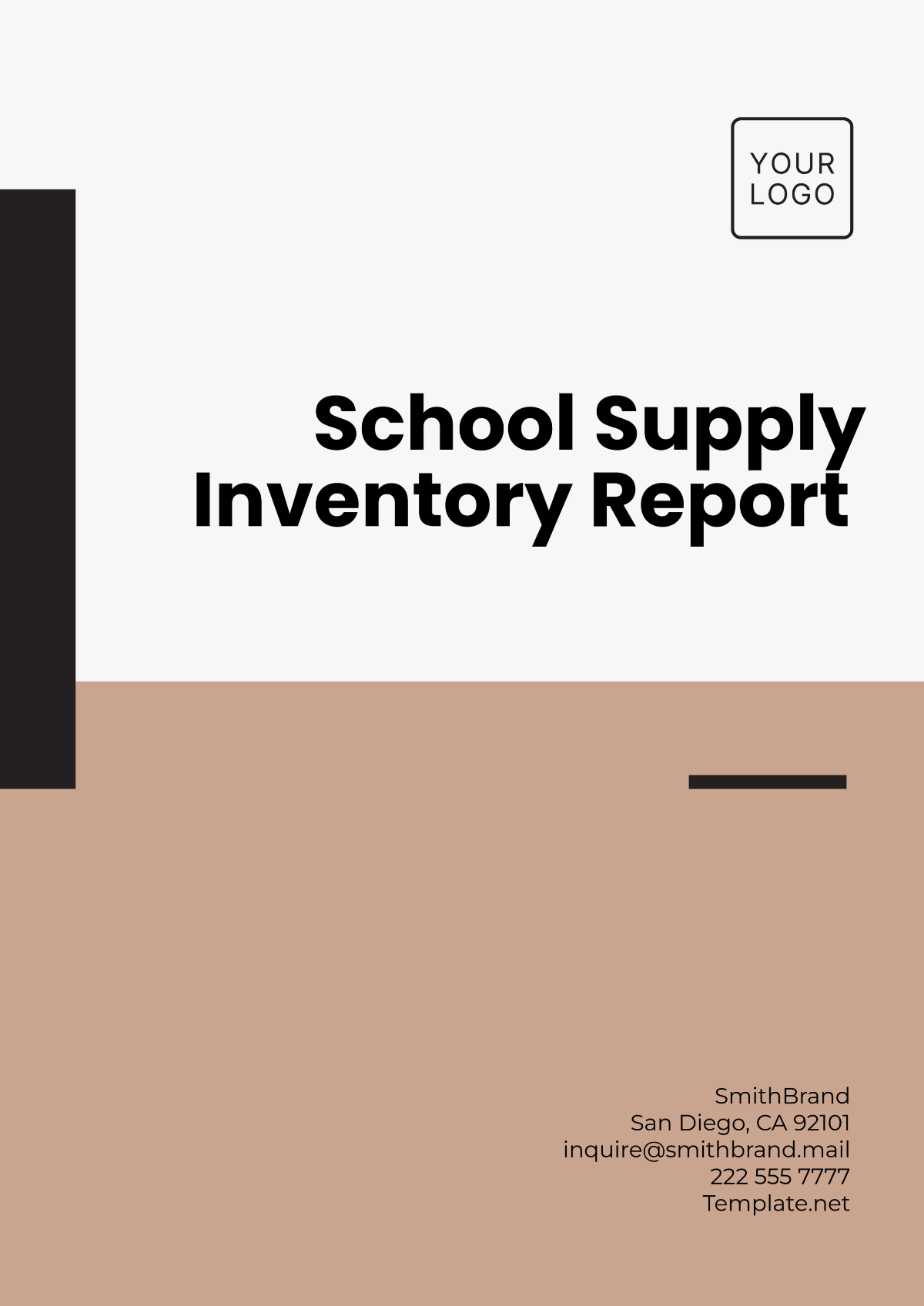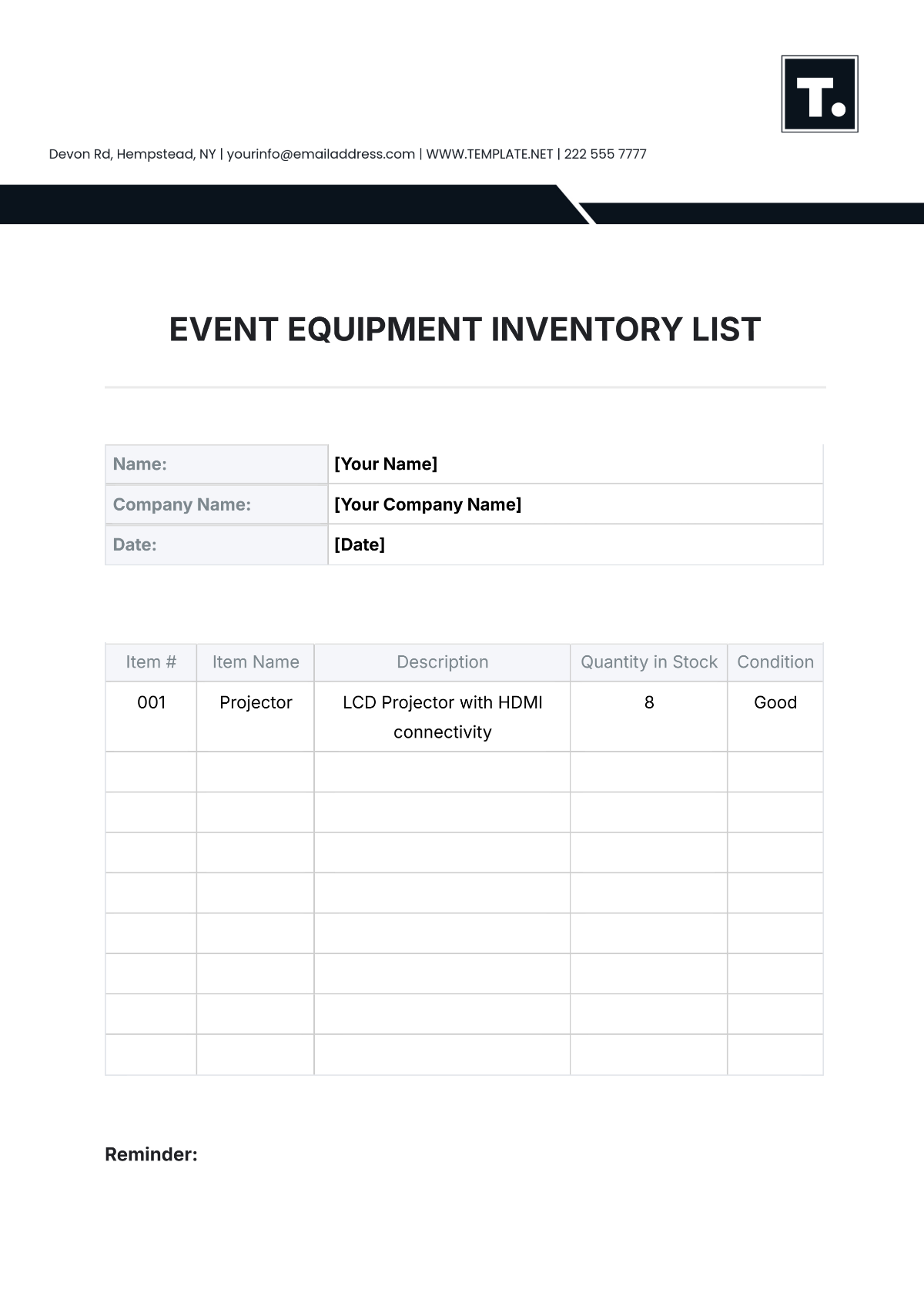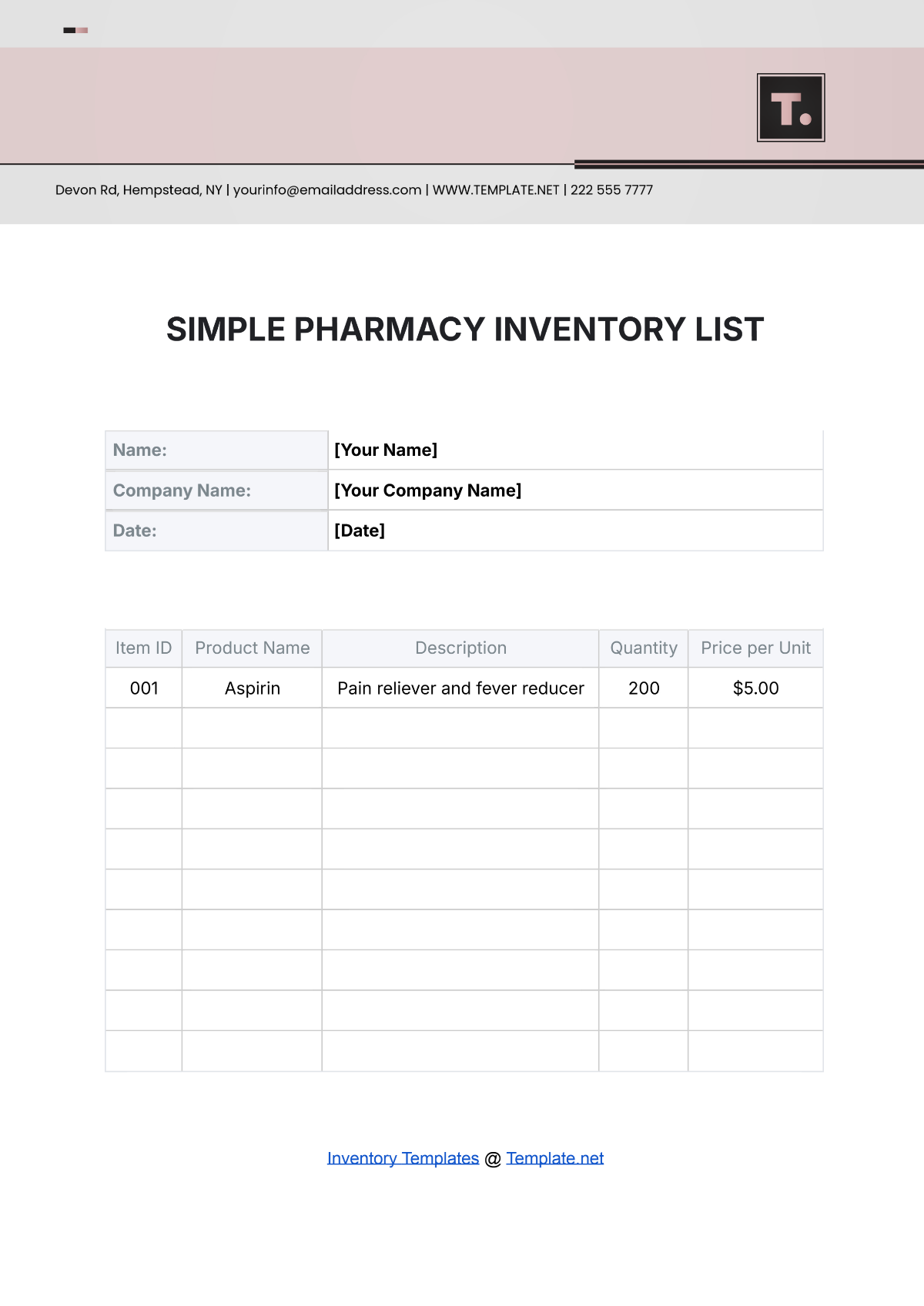Inventory Audit Report
Company: | Prepared by: | Date: |
|---|---|---|
[YOUR COMPANY NAME] | [YOUR NAME] | January 3, 2050 |
I. Executive Summary
This Inventory Audit Report provides a comprehensive overview of the inventory management practices at [YOUR COMPANY NAME] and highlights areas for improvement. The audit covers the assessment of the following:
Inventory Accuracy
Stock Levels
Storage Conditions
Inventory Turnover
Compliance with Policies
II. Audit Objectives
The primary objectives of this inventory audit are:
To verify the accuracy of inventory records.
To assess the efficiency of the inventory management process.
To identify discrepancies and potential risks.
To ensure compliance with internal policies and external regulations.
III. Methodology
The following methodologies were employed during the audit:
Physical count of inventory items.
Reconciliation of physical count with inventory records.
Interviews with inventory management personnel.
Review of inventory management systems and controls.
Assessment of warehouse conditions.
IV. Findings
1. Inventory Accuracy
During the physical count, the following discrepancies were noted:
Item | Recorded Quantity | Actual Quantity | Variance |
|---|---|---|---|
Electronic Widgets | 100 | 95 | -5 |
Mechanical Gadgets | 200 | 210 | +10 |
2. Stock Levels
The following items were identified as overstocked or understocked:
Electronic Widgets: Overstocked (95 units above optimum level)
Mechanical Gadgets: Understocked (10 units below optimum level)
3. Storage Conditions
The storage conditions were found to be satisfactory, with appropriate temperature, humidity control, and safety measures in place.
4. Inventory Turnover
The average inventory turnover ratio for the fiscal year 2050 was calculated to be 4.5, which is below the industry benchmark of 6.0, indicating potential issues in inventory management.
5. Compliance with Policies
It was observed that the inventory management practices were in partial compliance with the internal policies. Notable exceptions include:
Incomplete record-keeping
Lack of periodic audits
V. Recommendations
Based on the findings, the following recommendations are made to improve inventory management at [YOUR COMPANY NAME]:
Implement regular inventory audits to ensure accuracy.
Enhance training for inventory management personnel.
Optimize stock levels to reduce overstocking and understocking.
Improve record-keeping practices.
Ensure compliance with internal and external policies.
VI. Conclusion
This inventory audit highlights several areas where [YOUR COMPANY NAME] can improve its inventory management practices. By addressing these issues, the company can ensure more accurate and efficient inventory management, ultimately enhancing overall operational performance.
VII. Appendices
1. Audit Team
Lead Auditor: [YOUR NAME]
Audit Team Members: Stella Duncan, Ethan Shaw
2. Supporting Documents
Inventory Records (as of January 2050)
Inventory Management Policy Document
Interview Transcripts with Inventory Personnel
